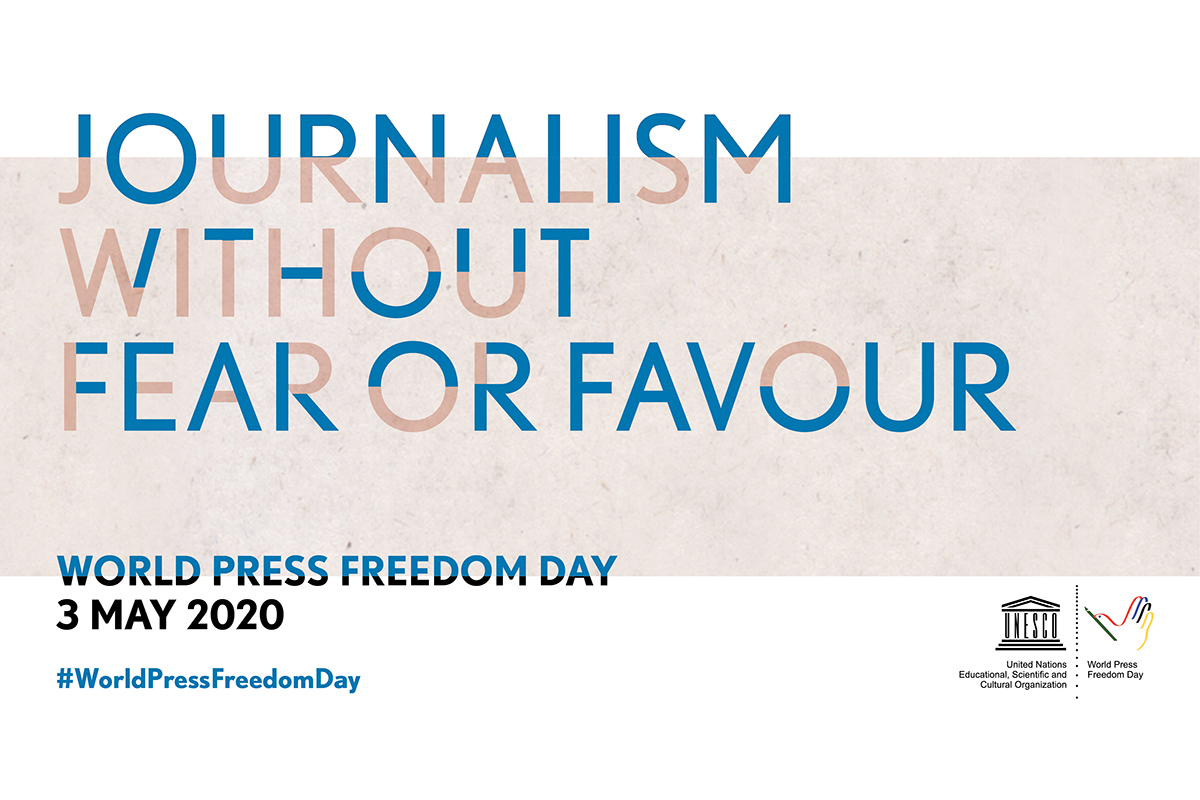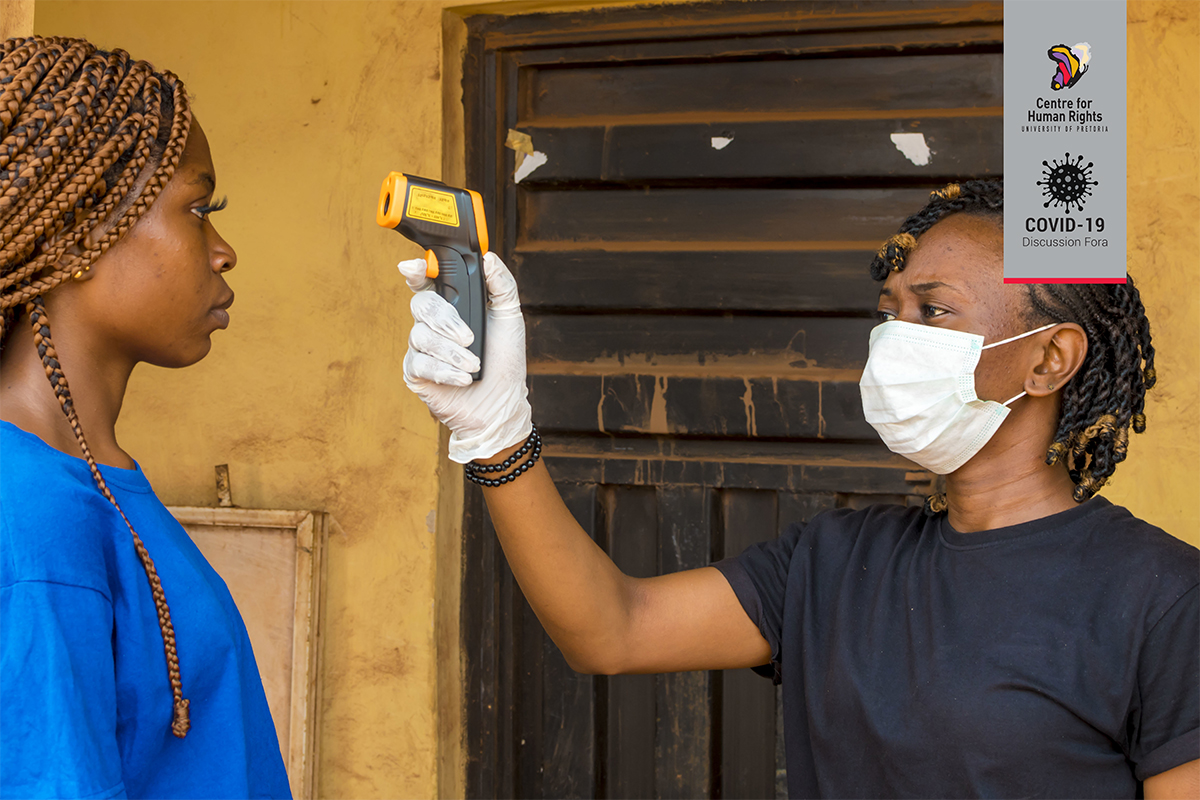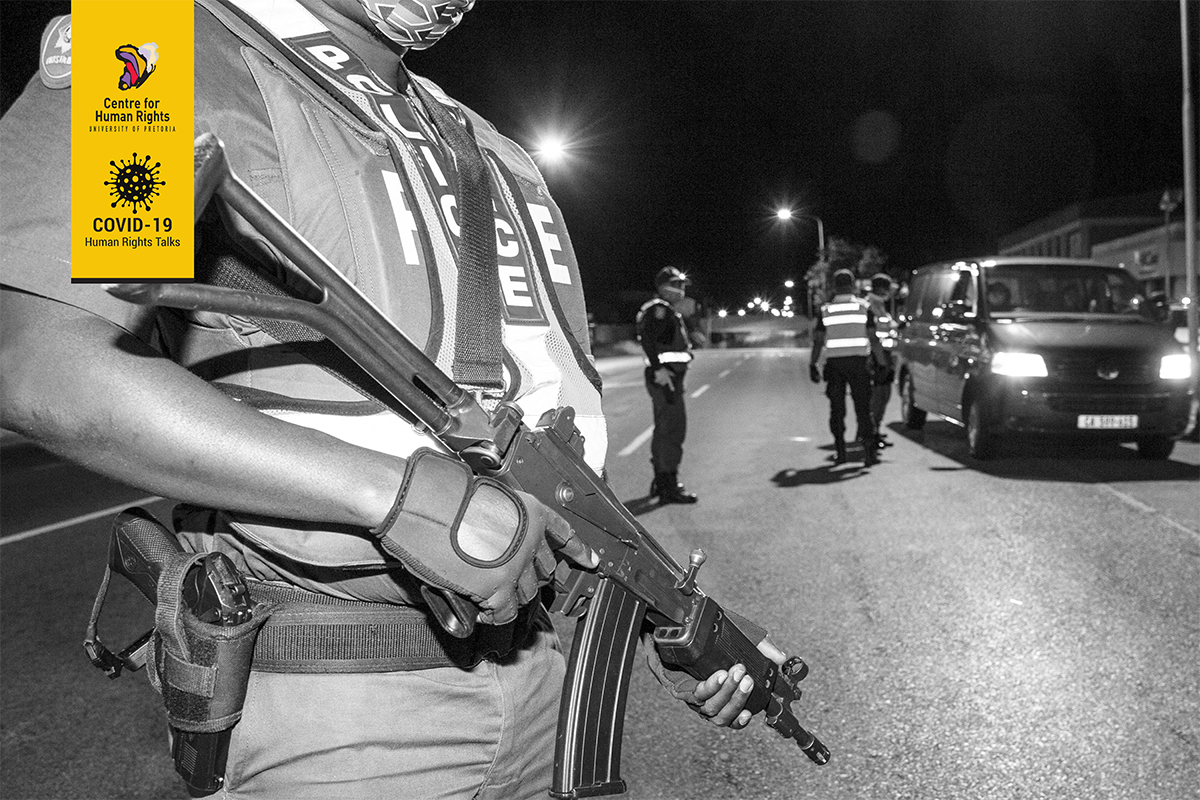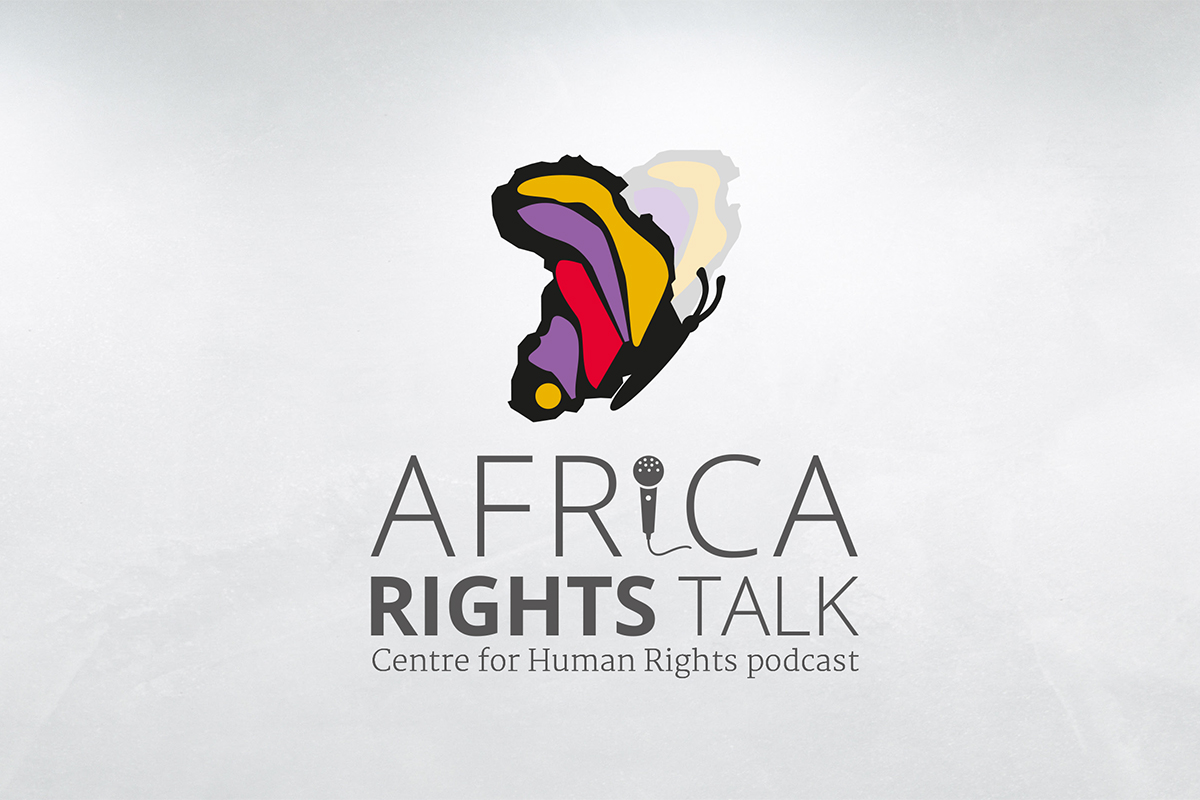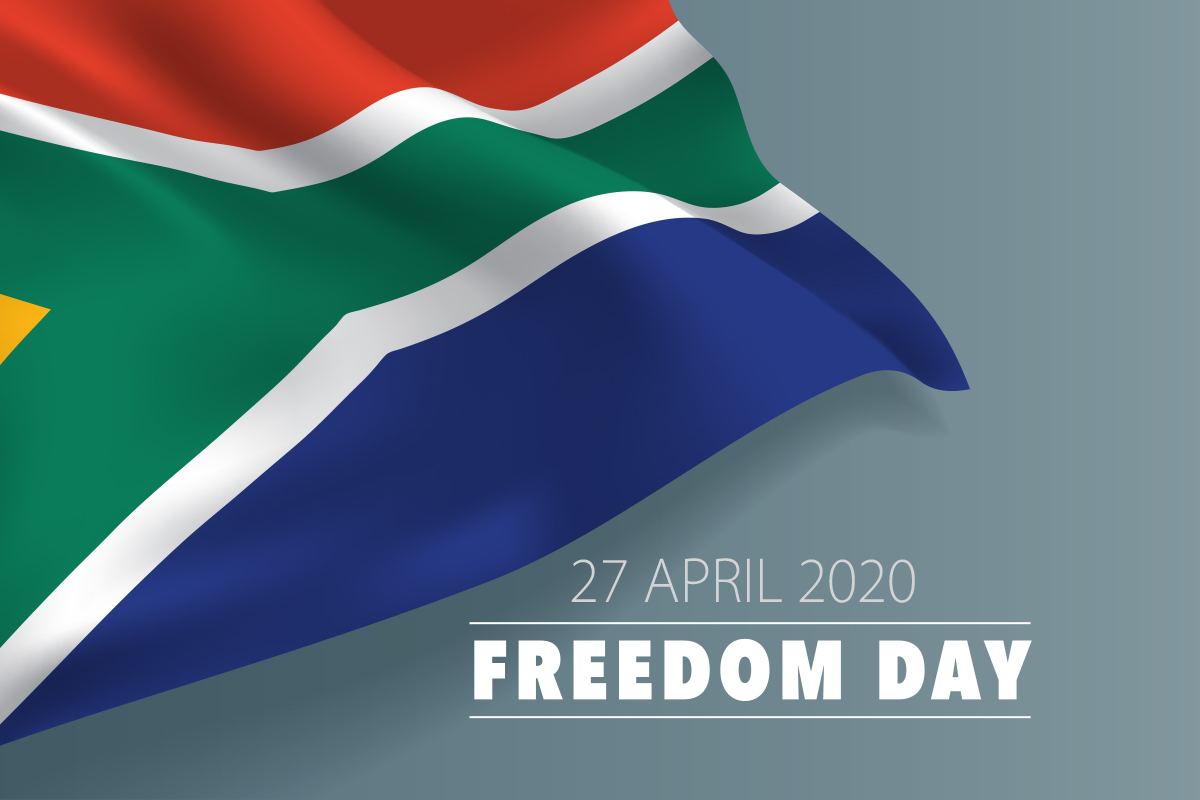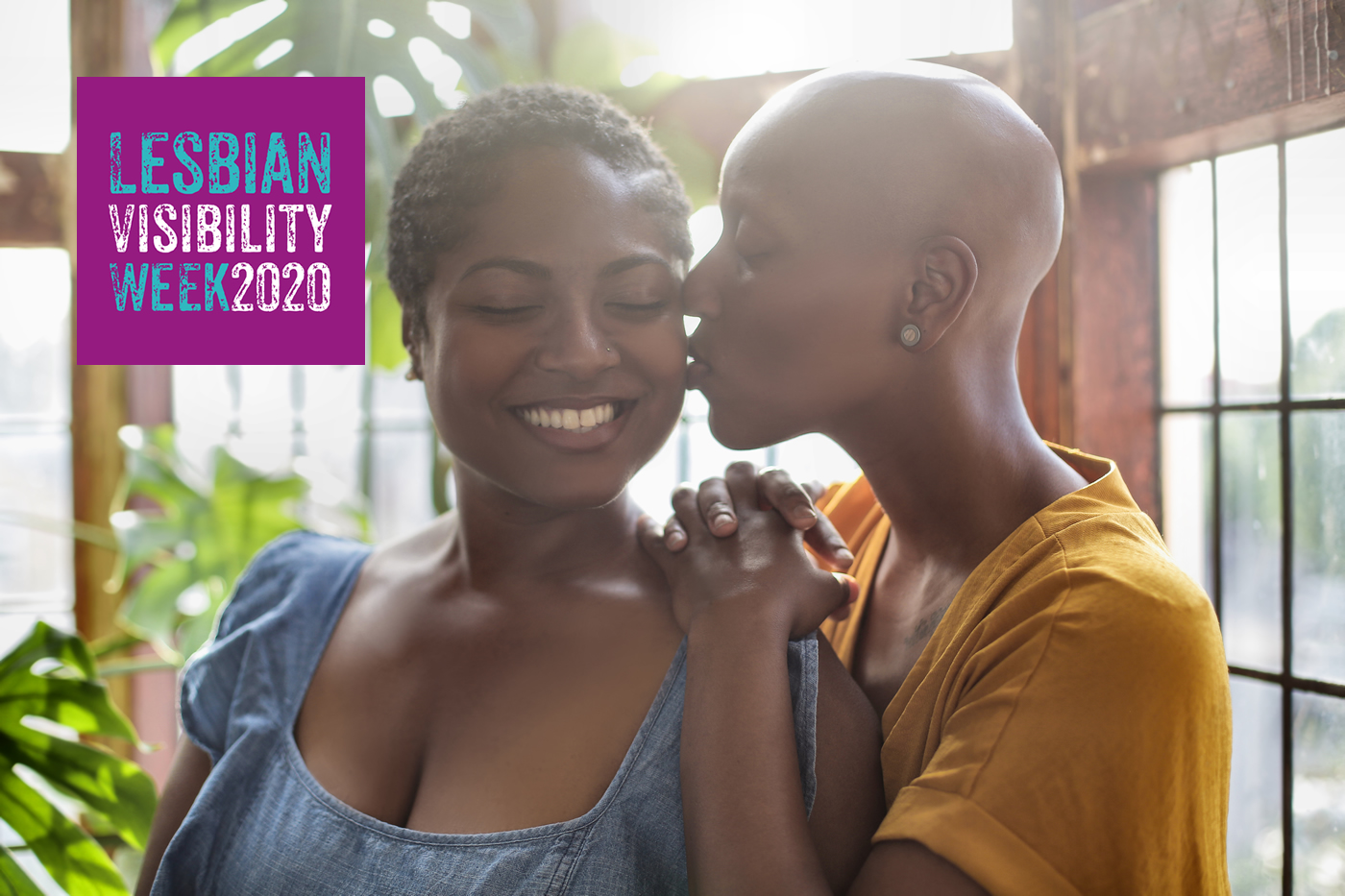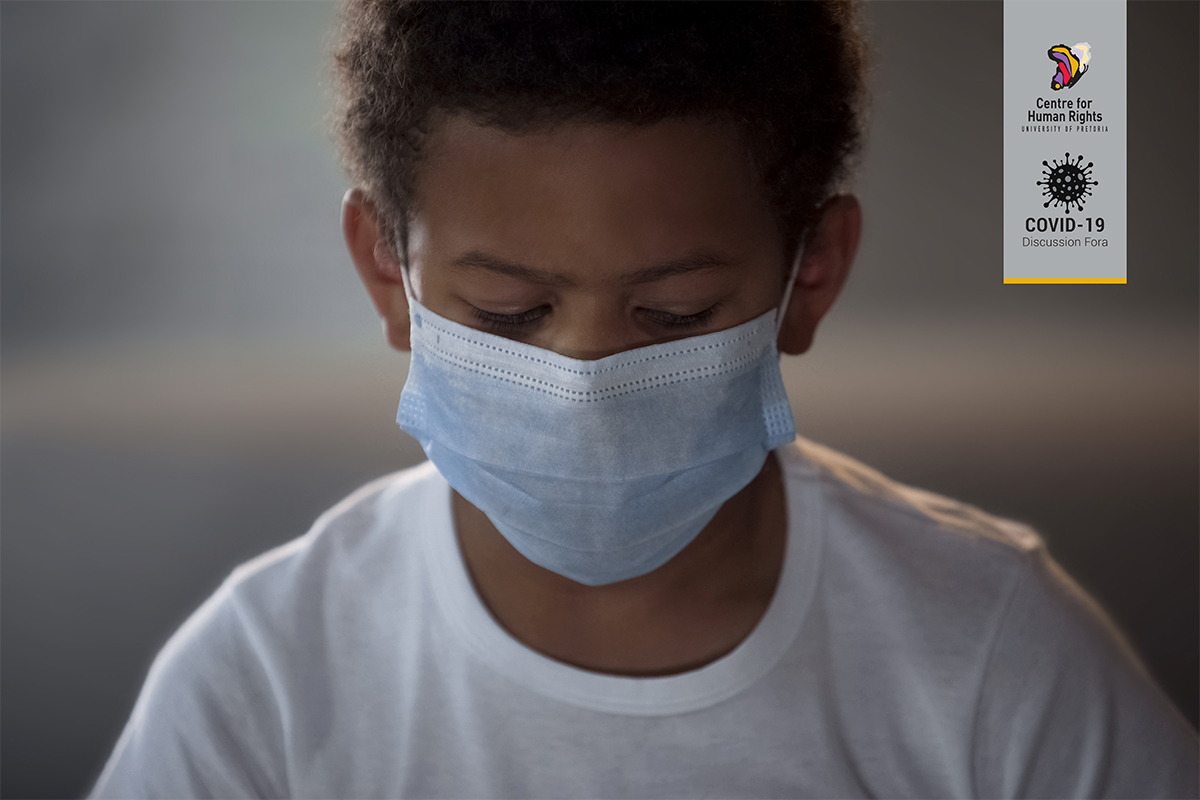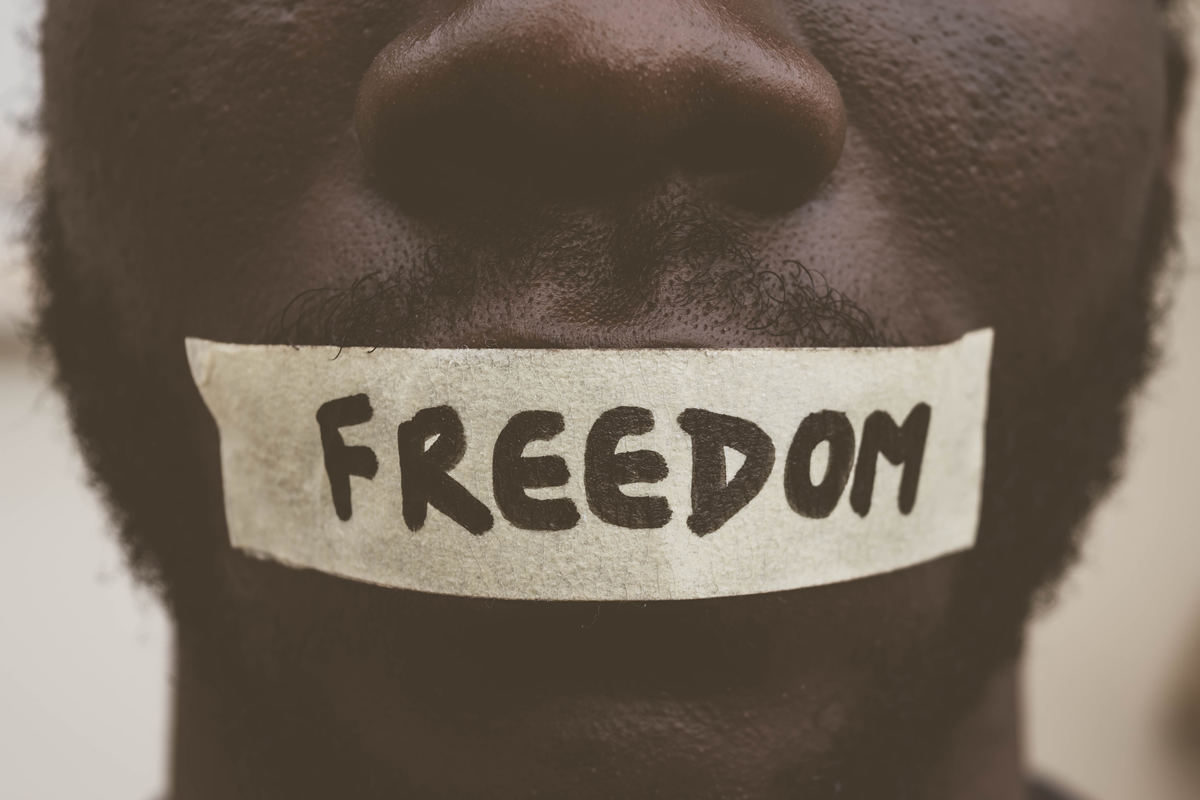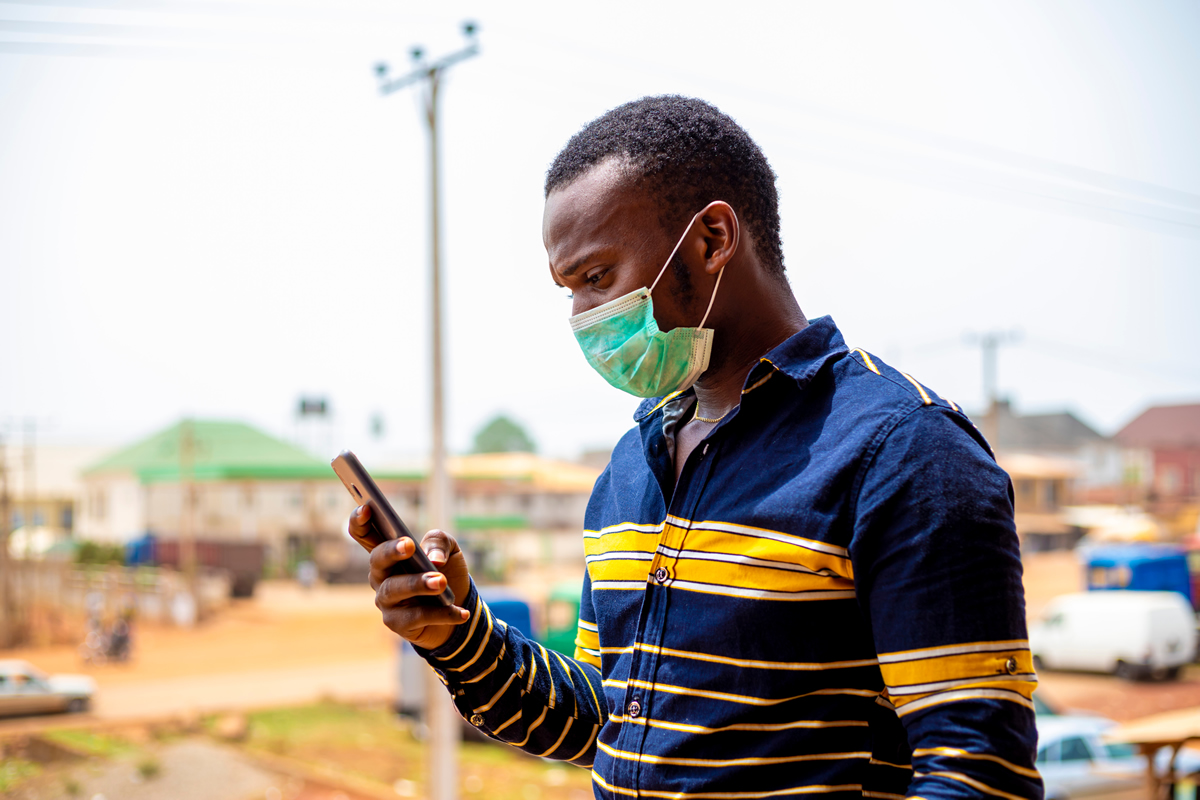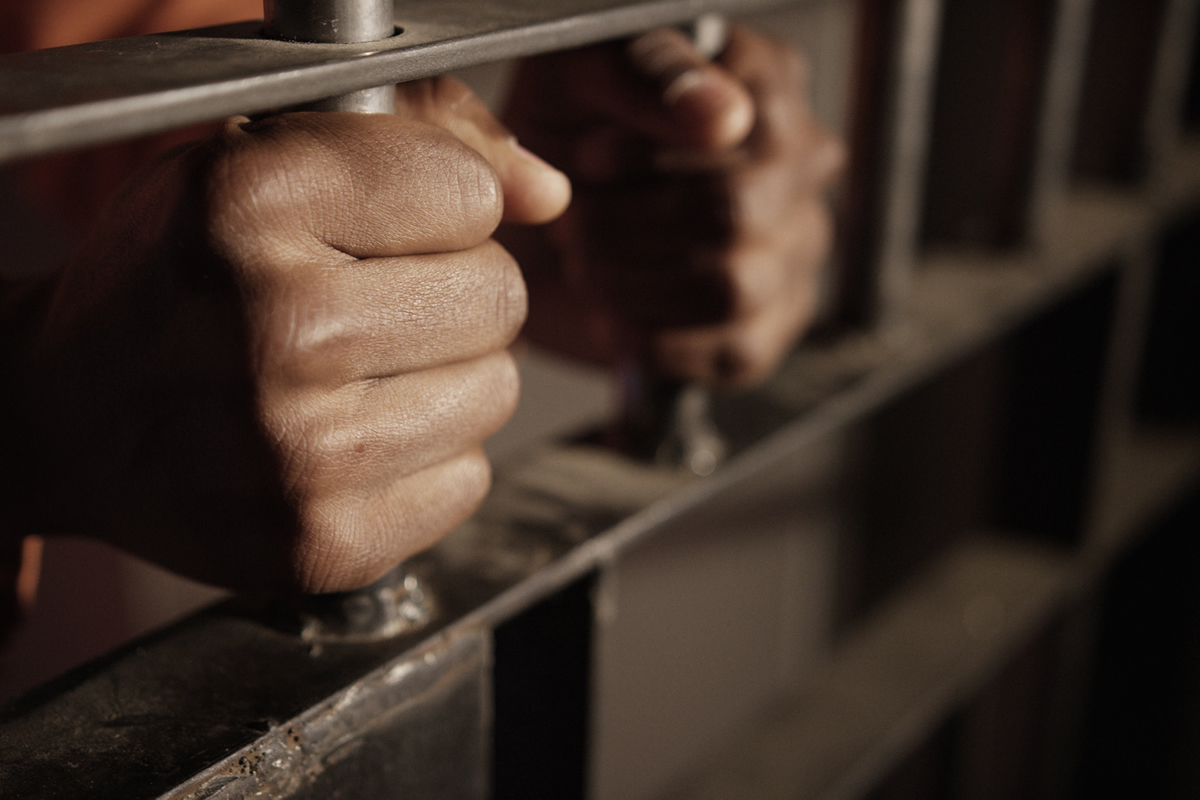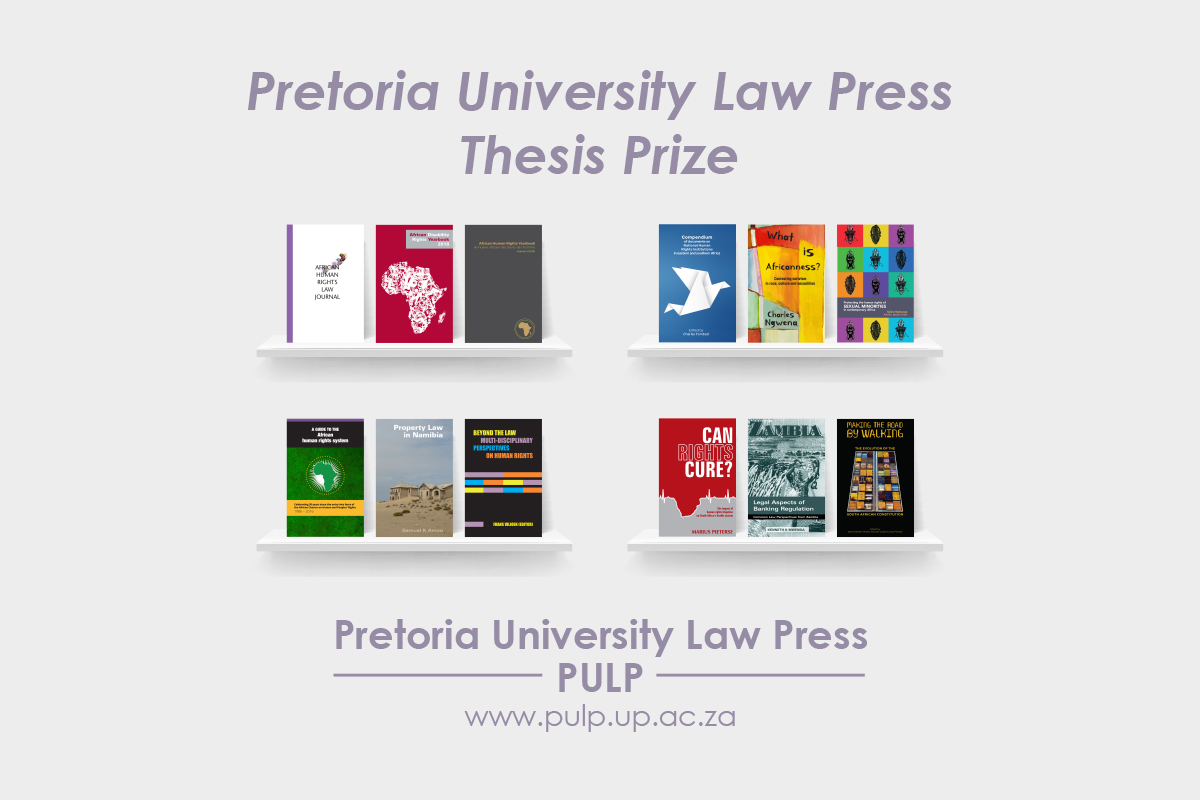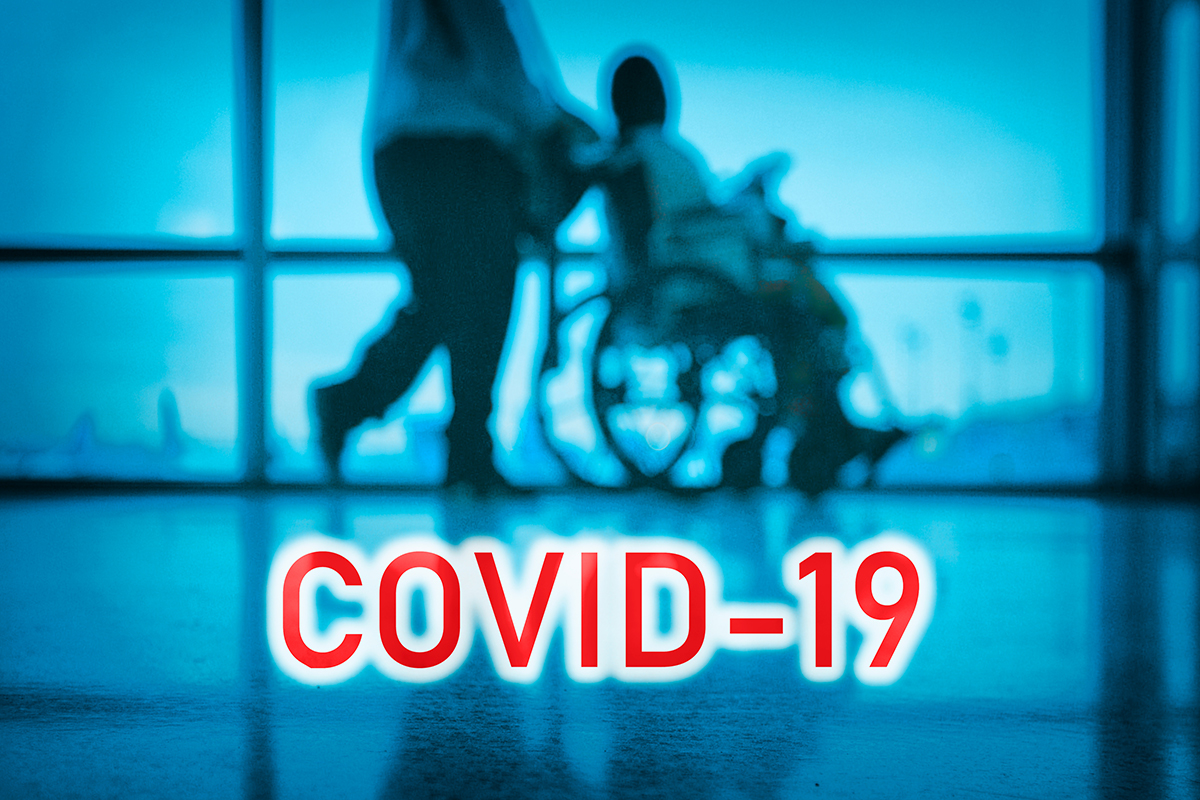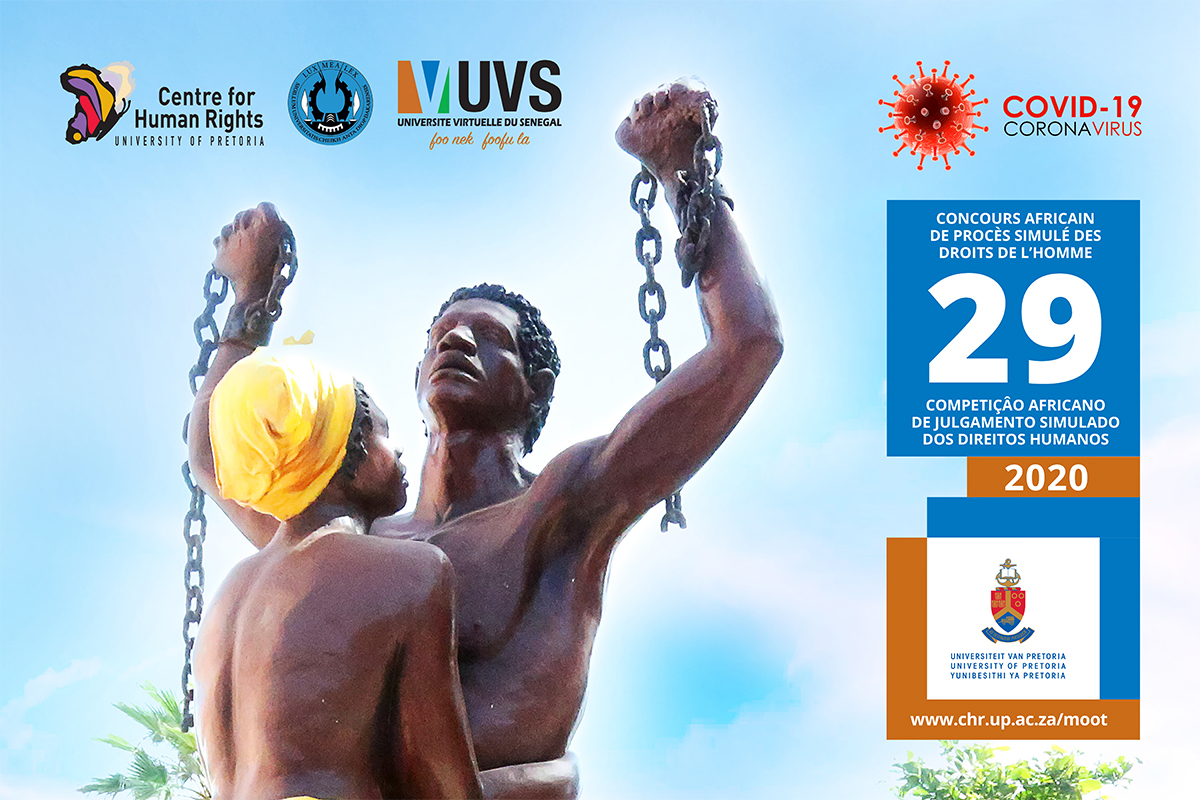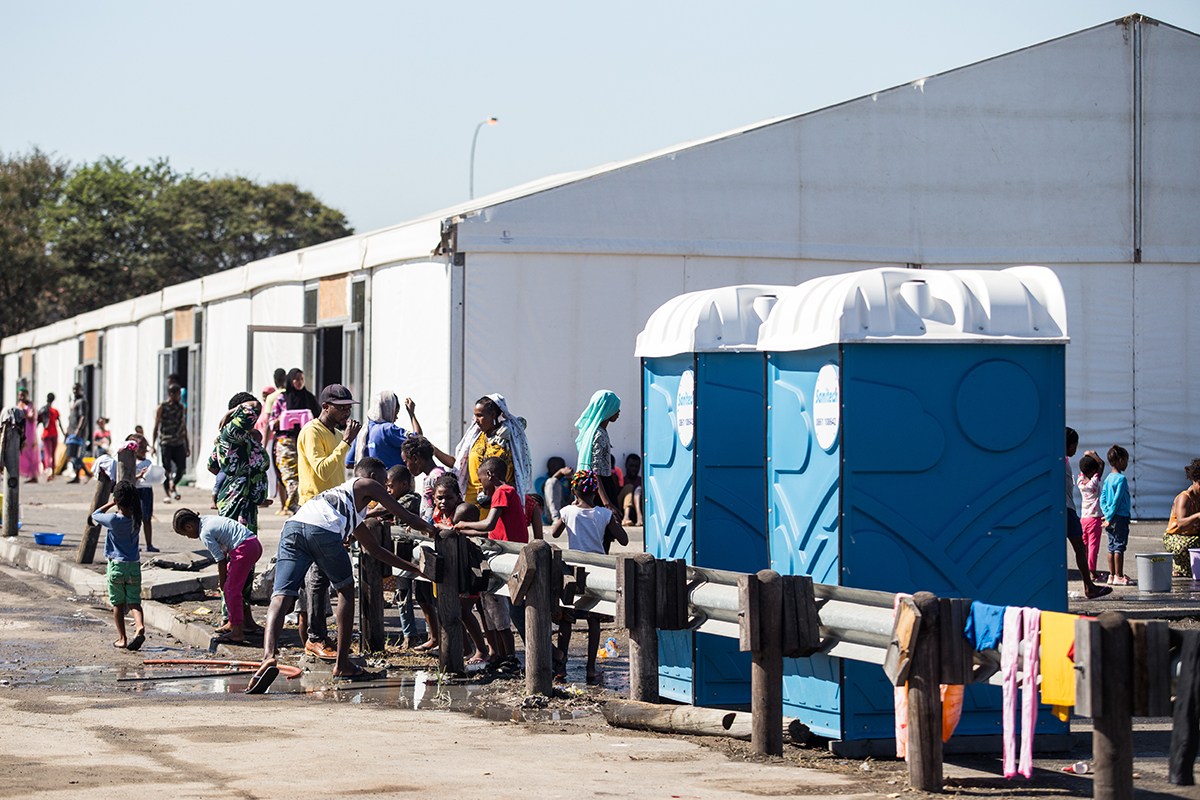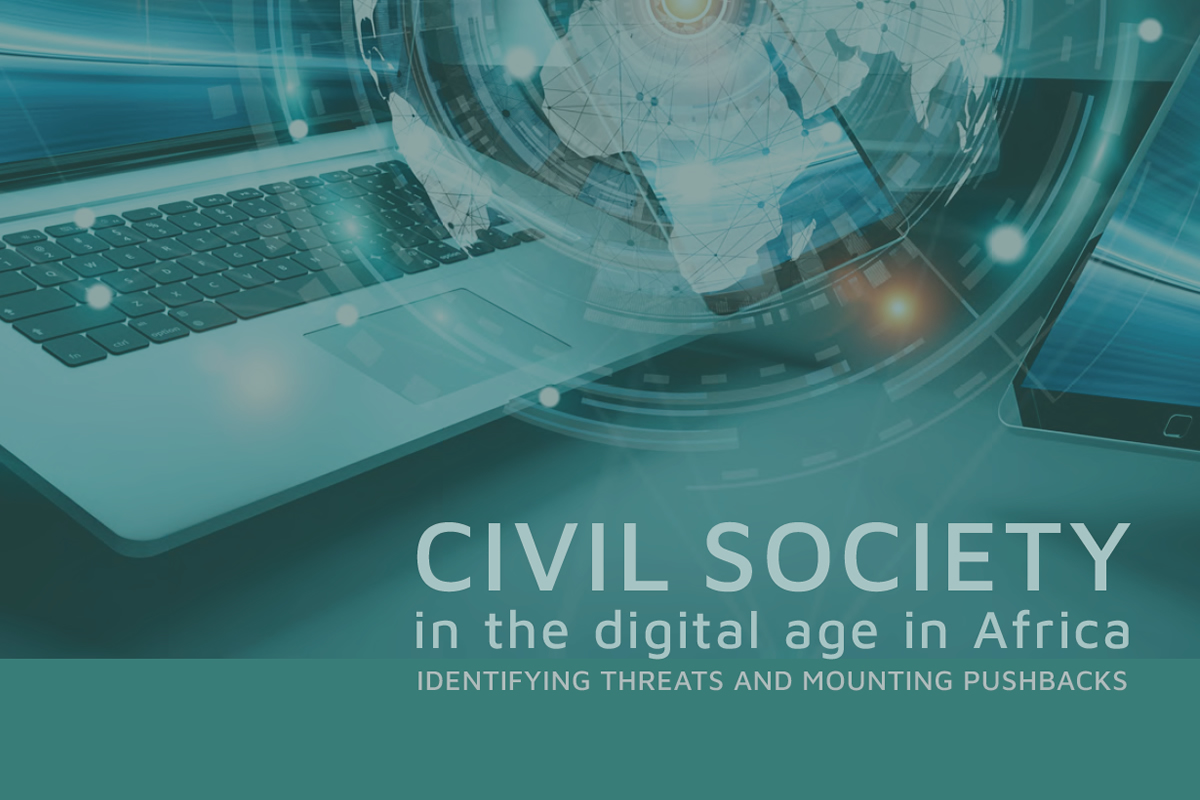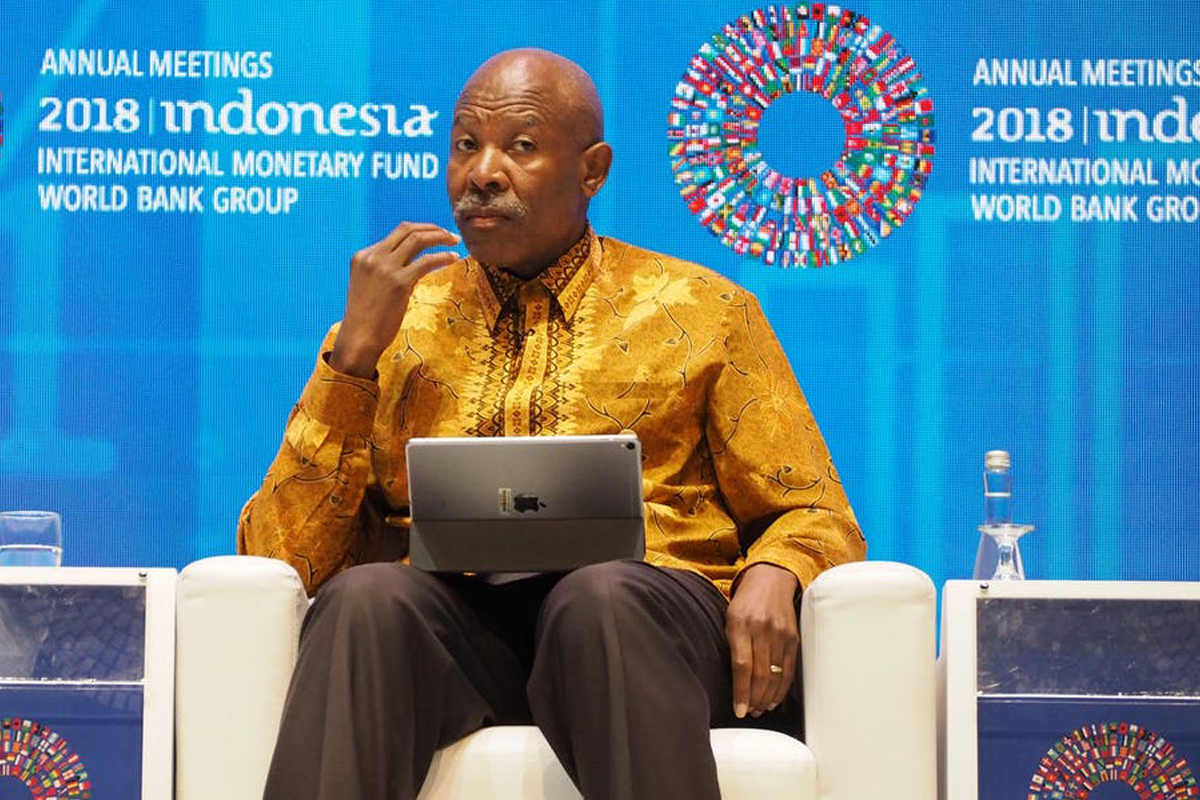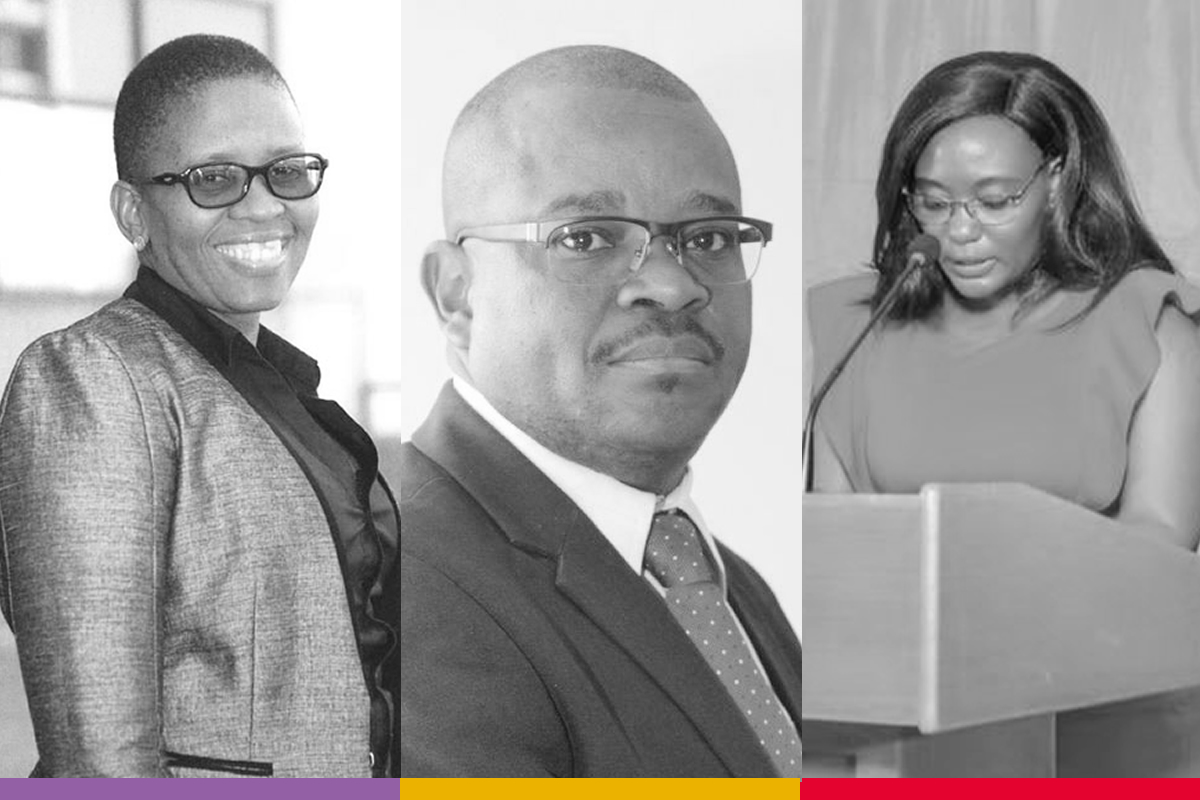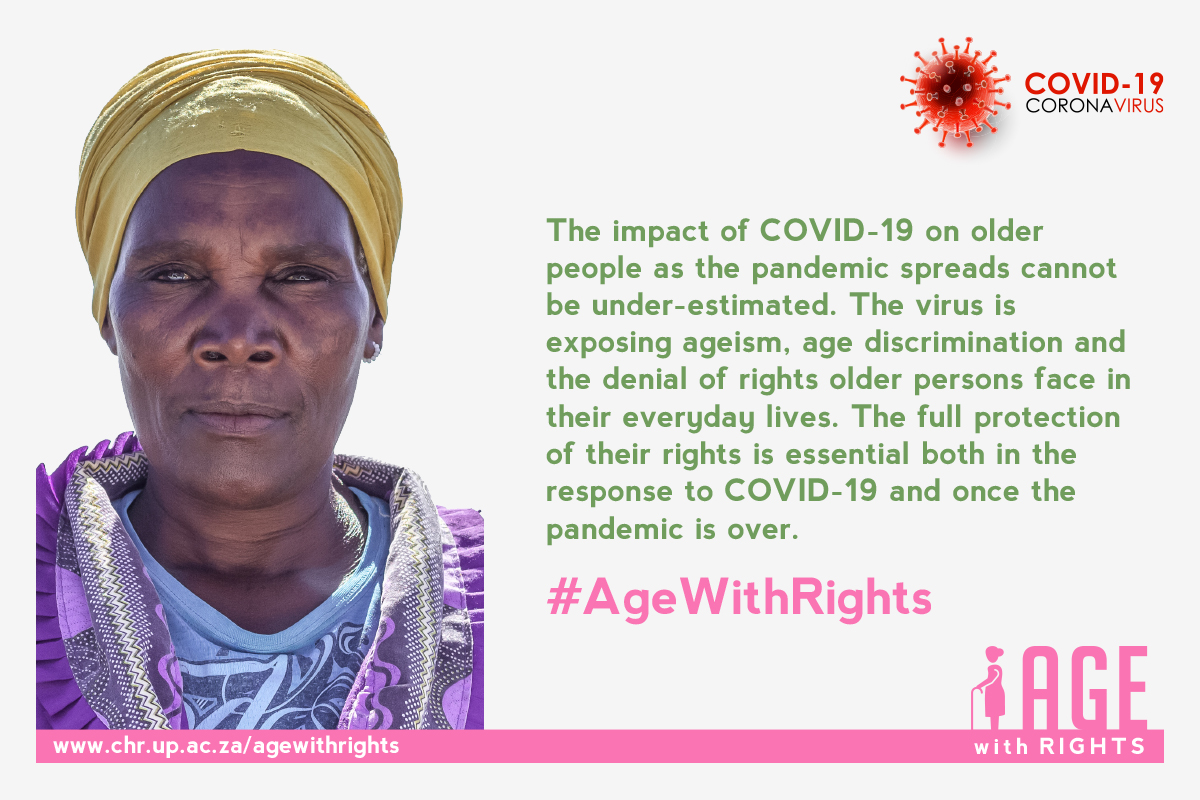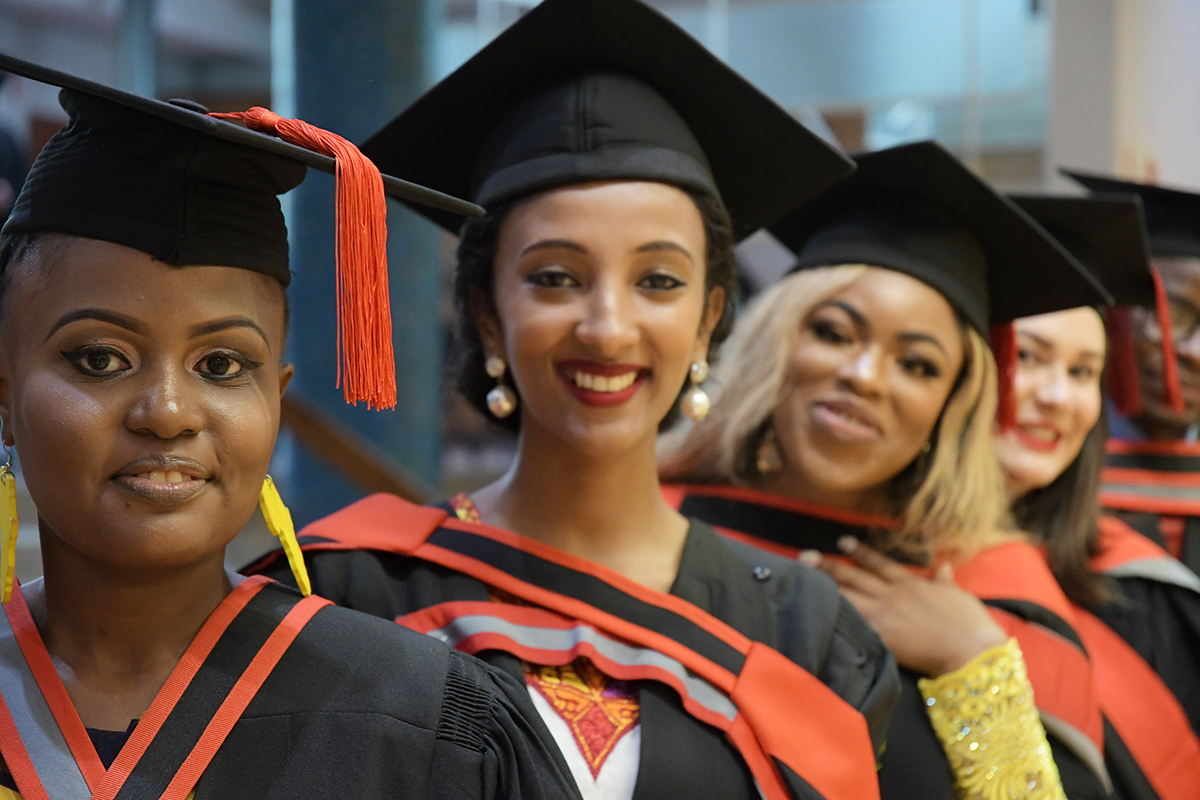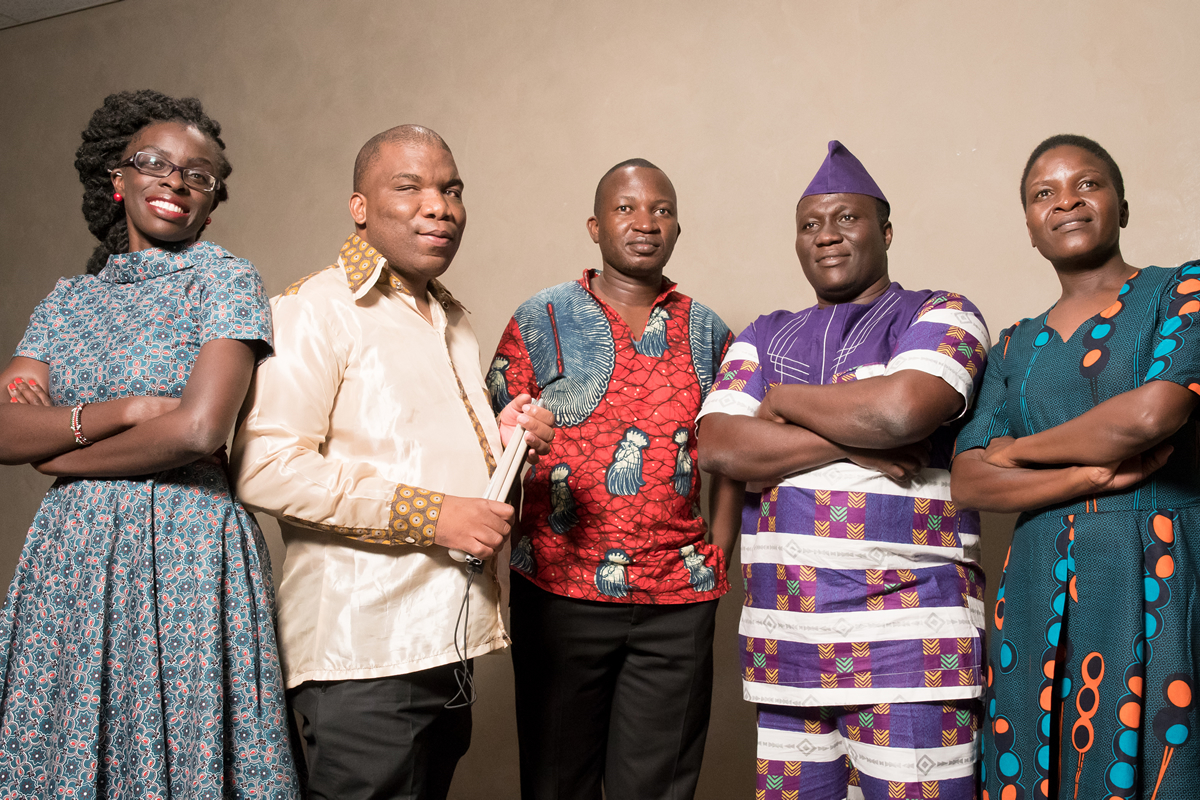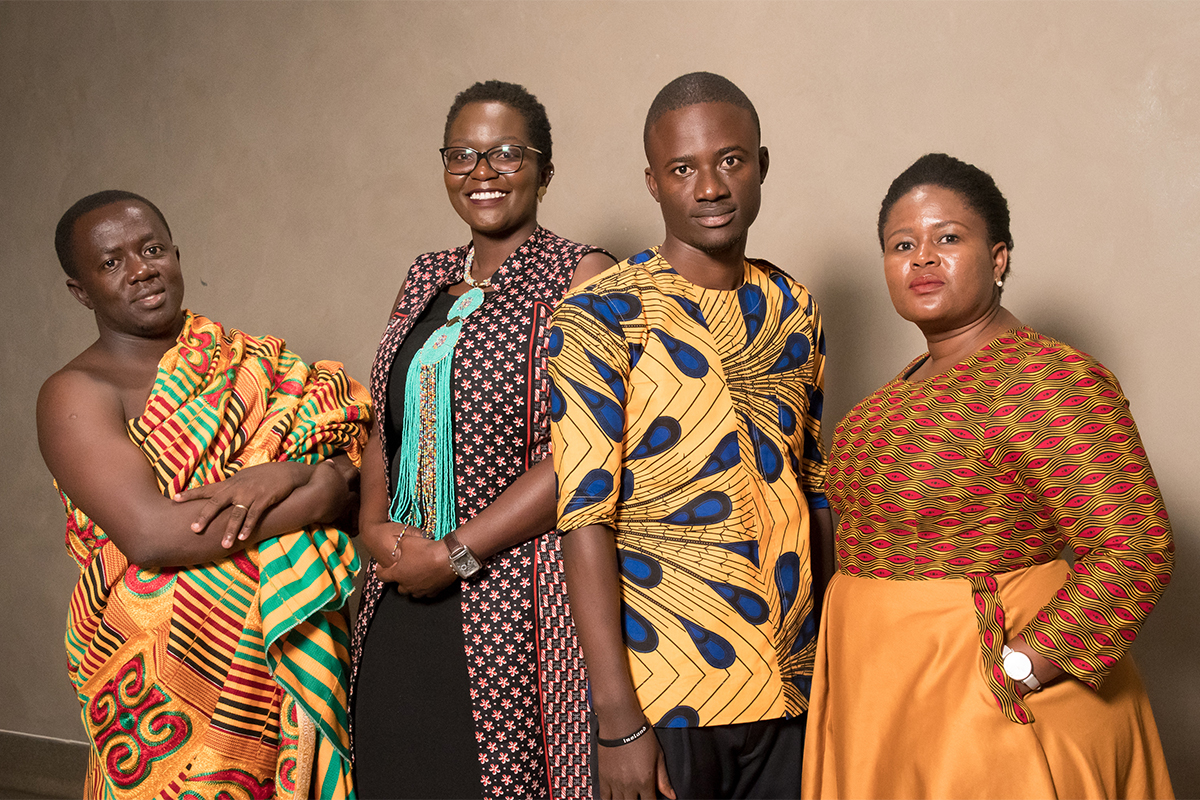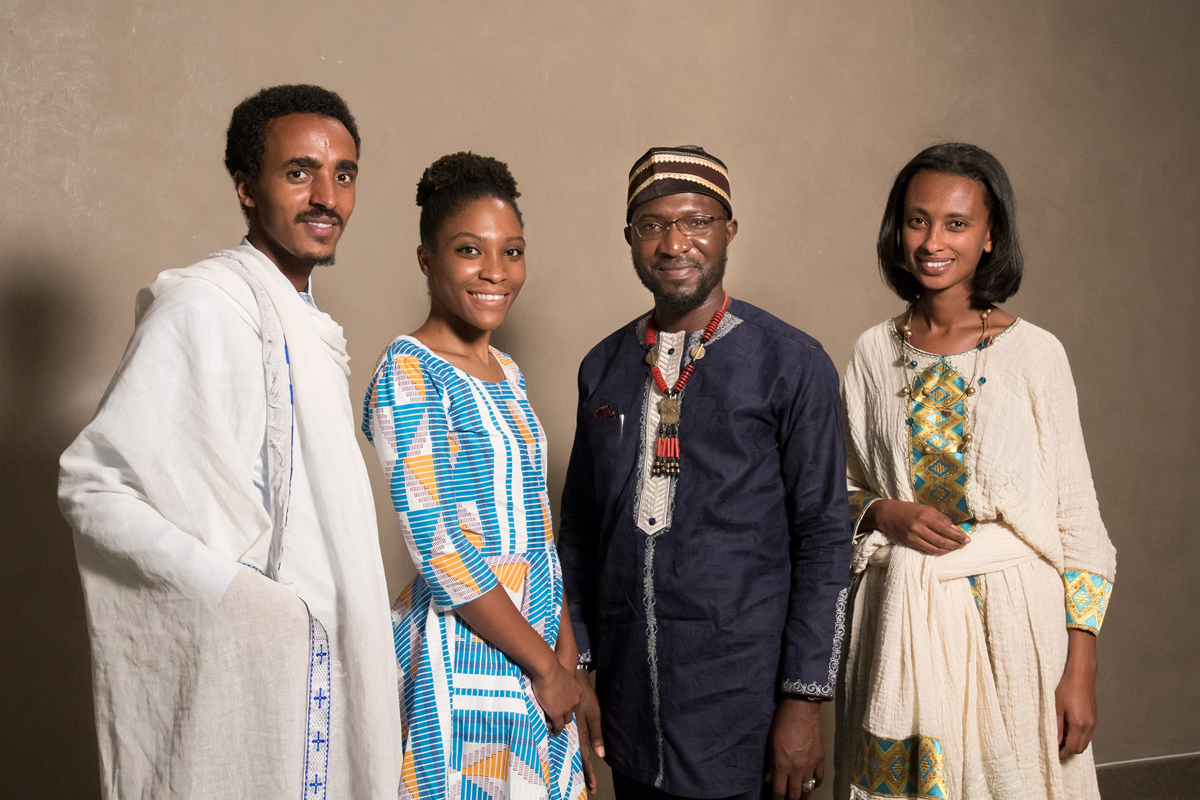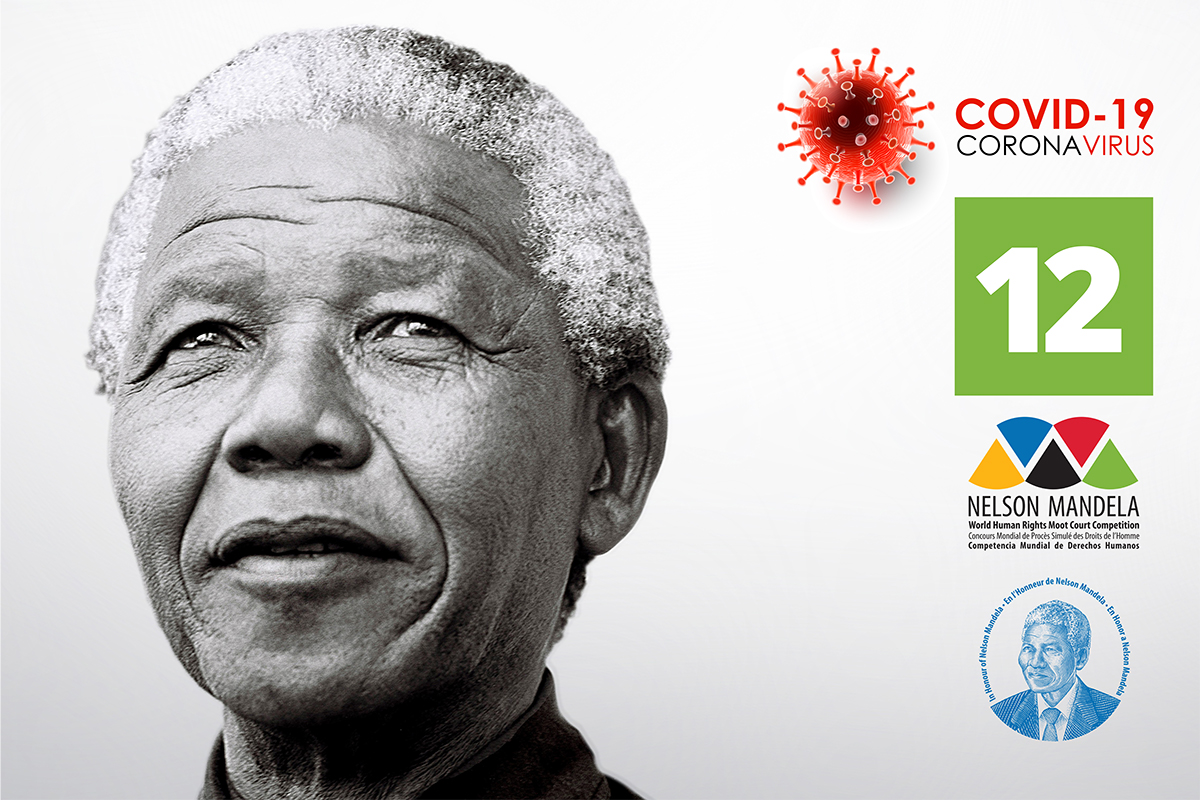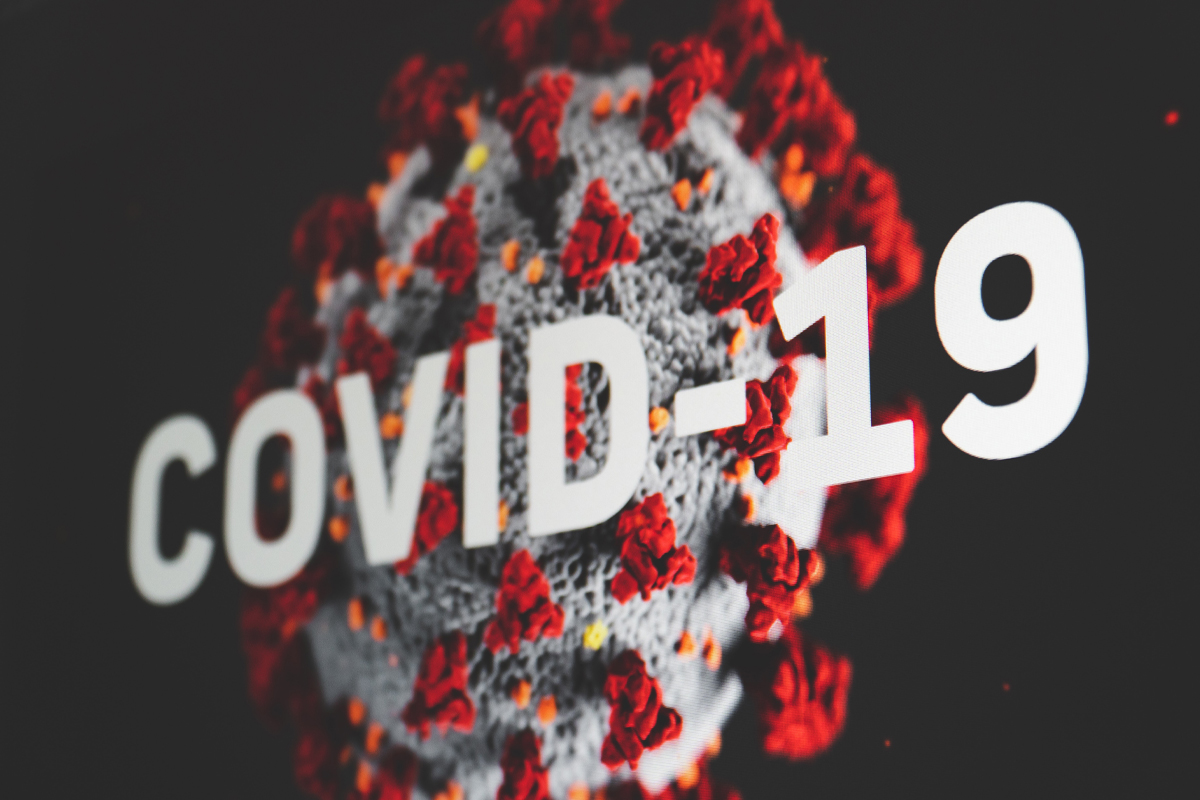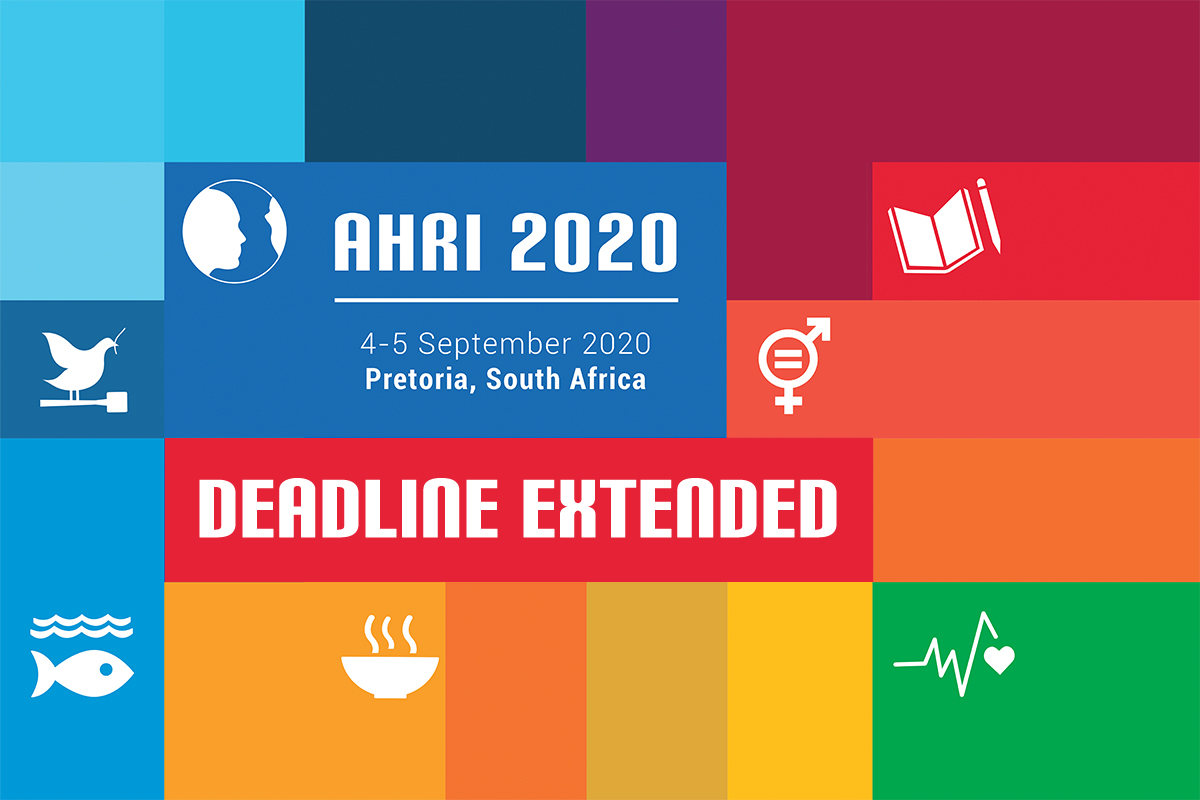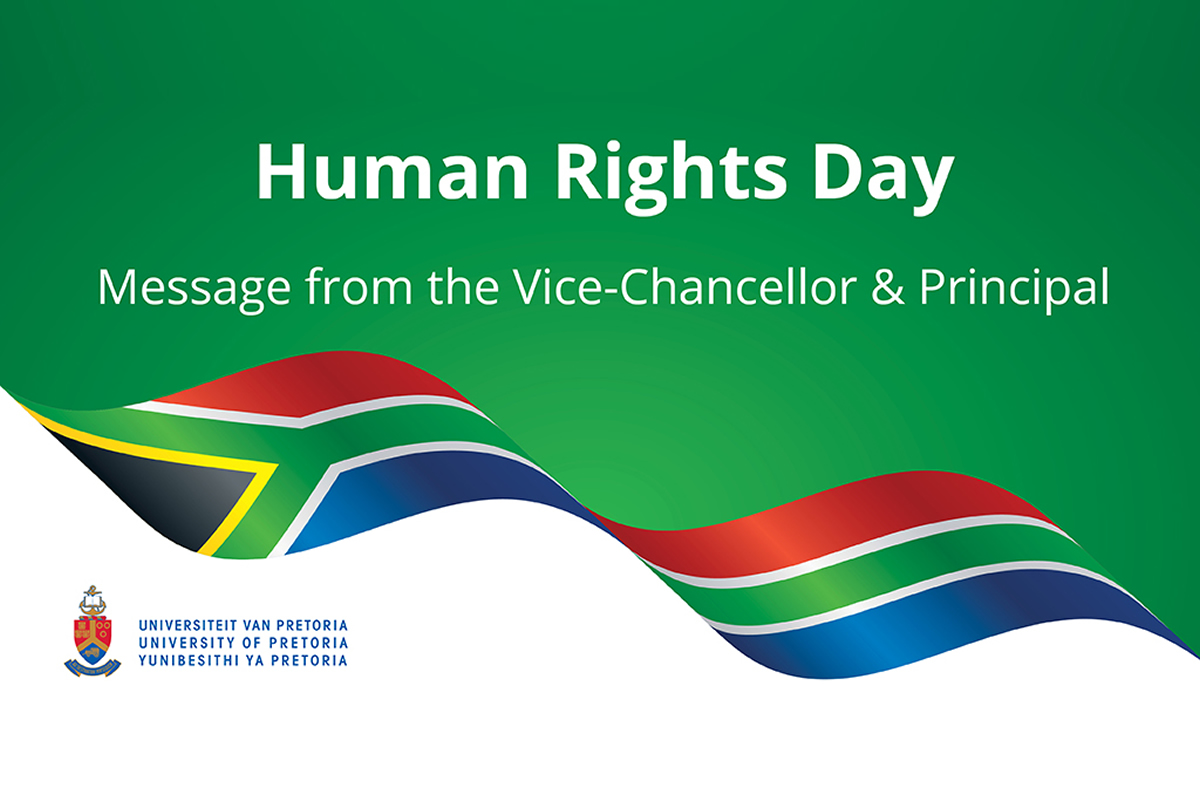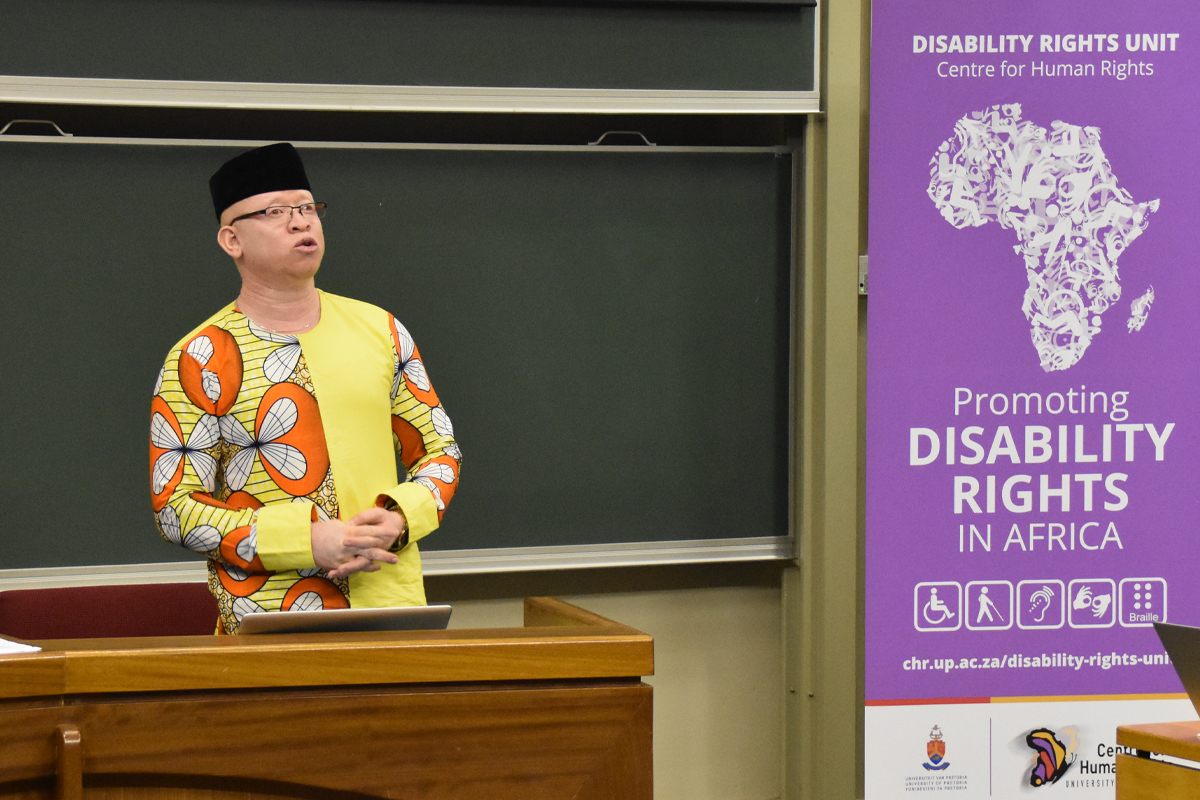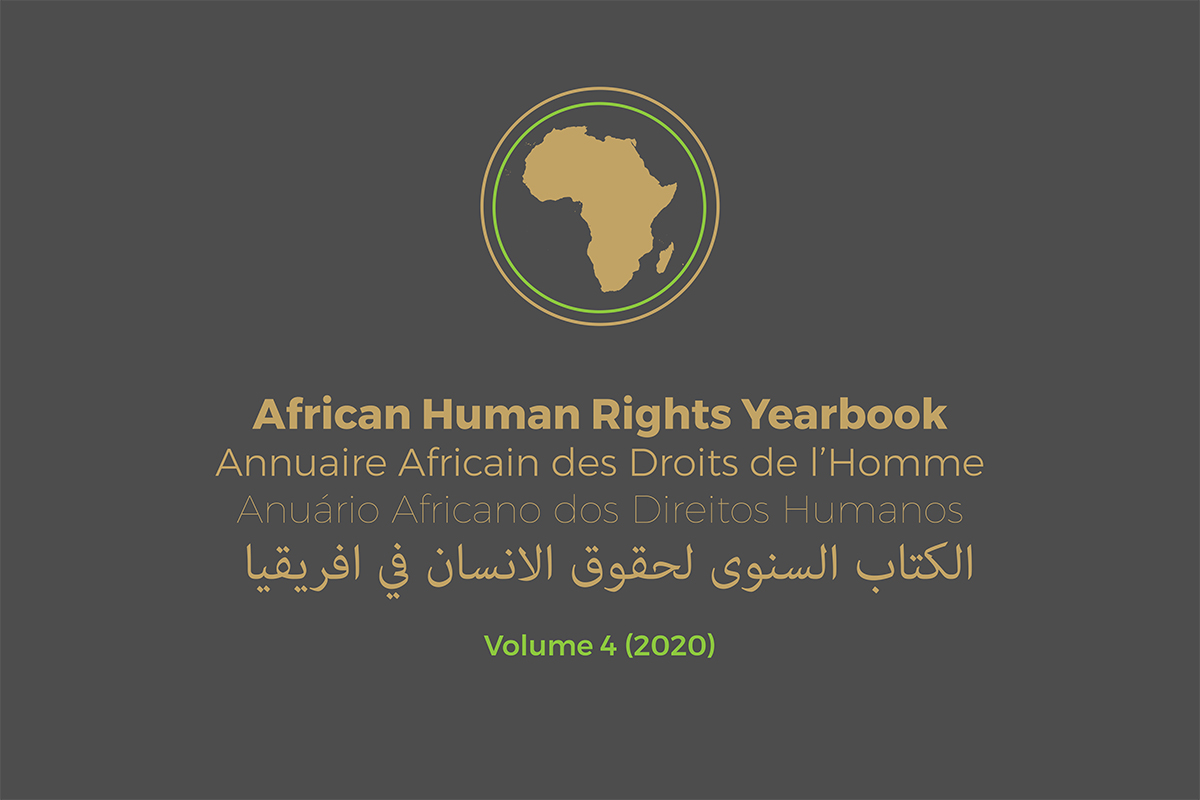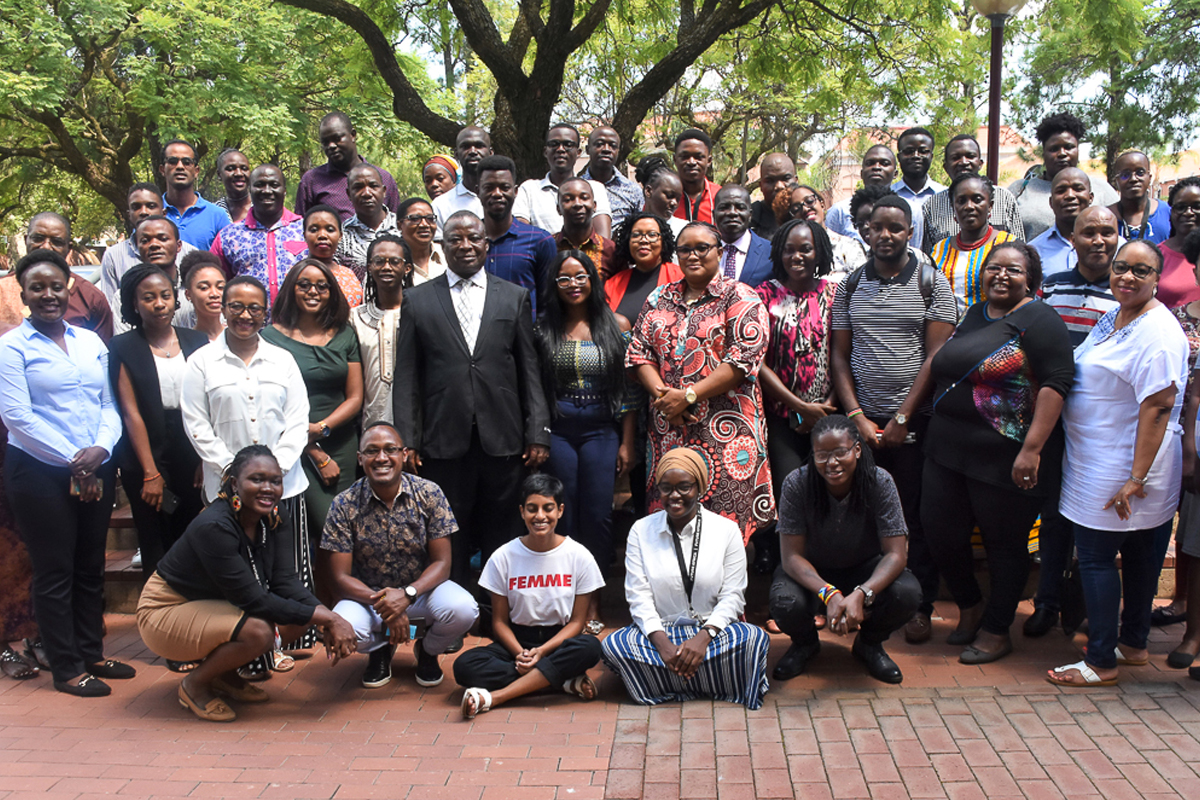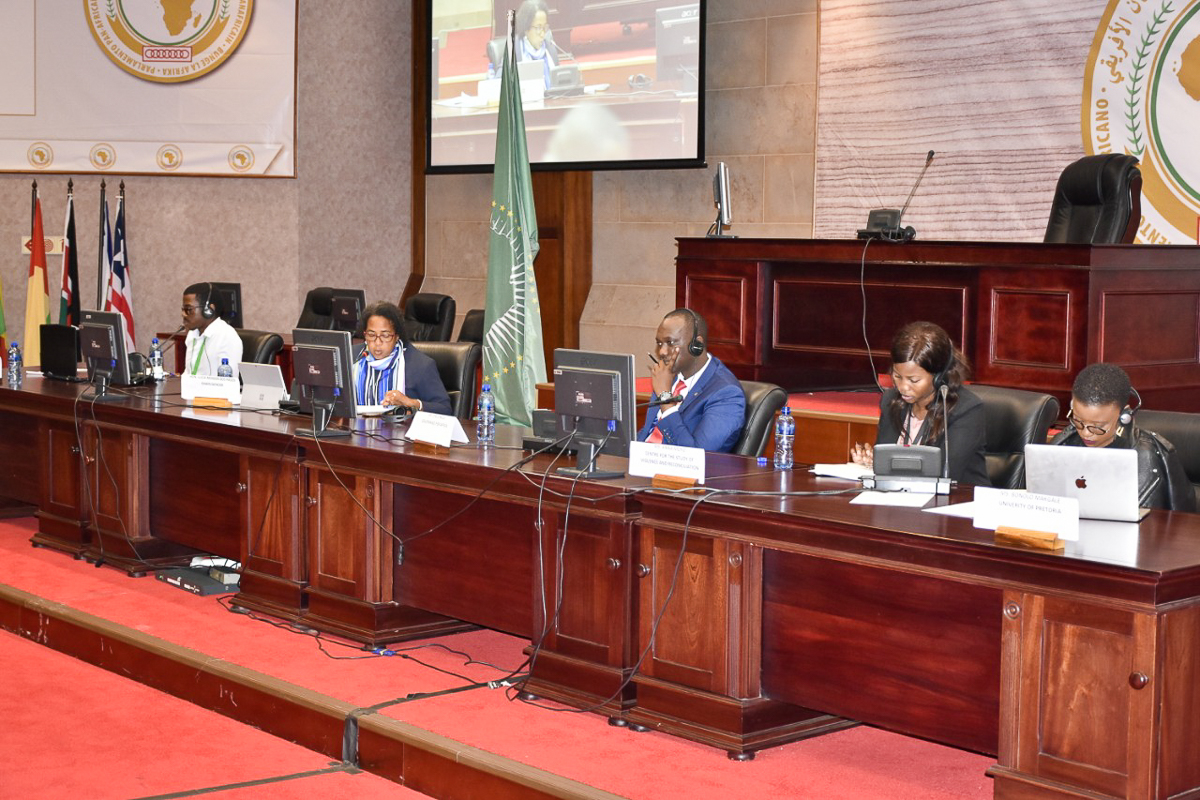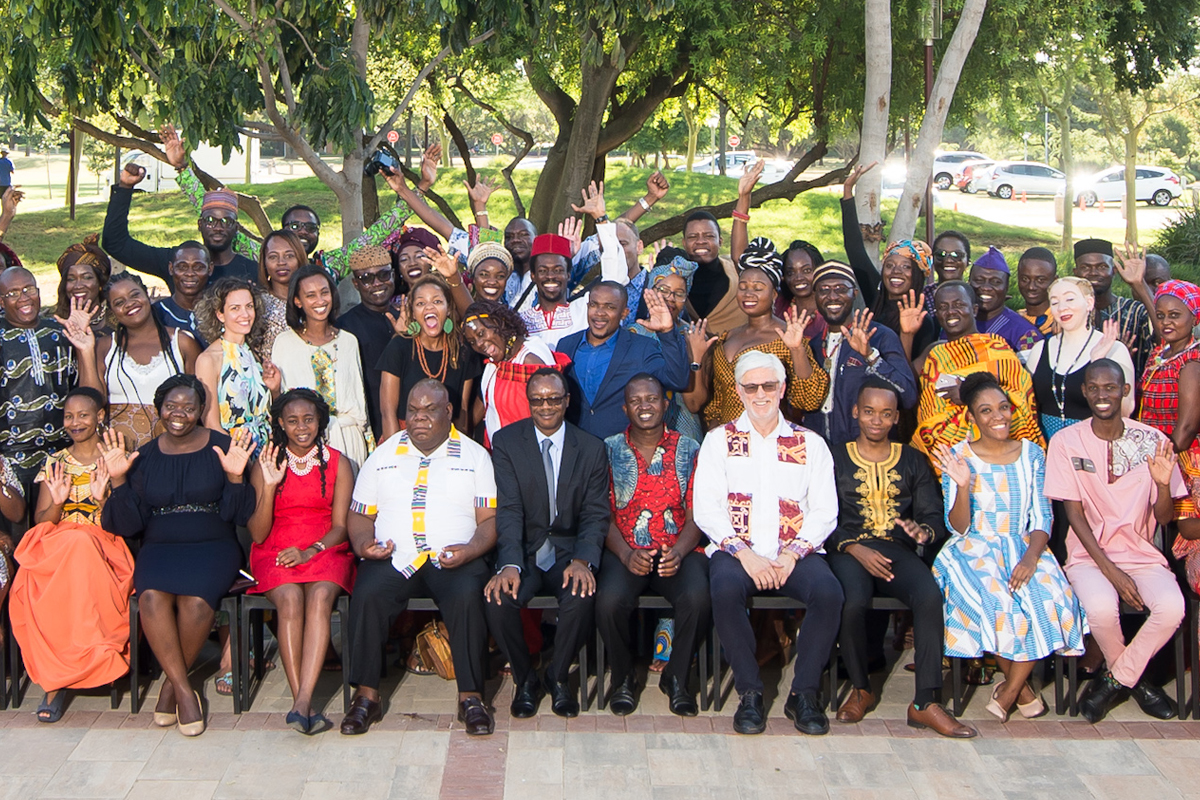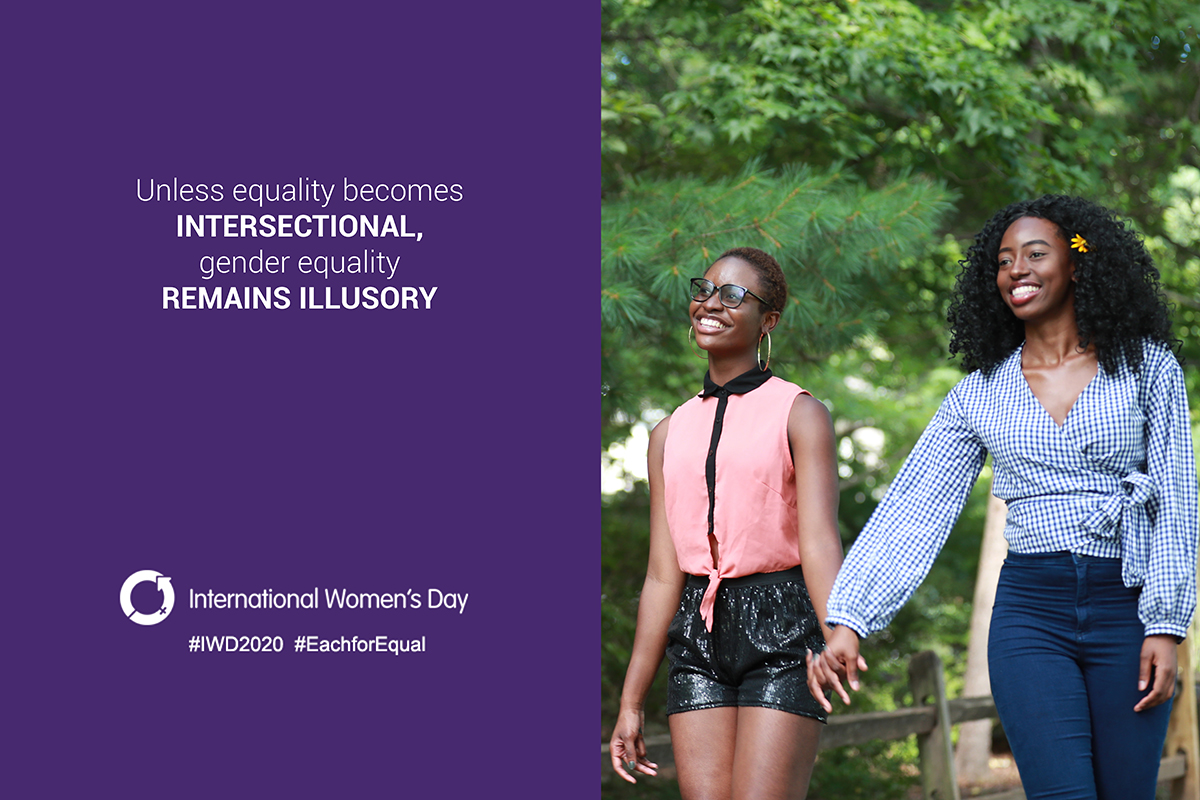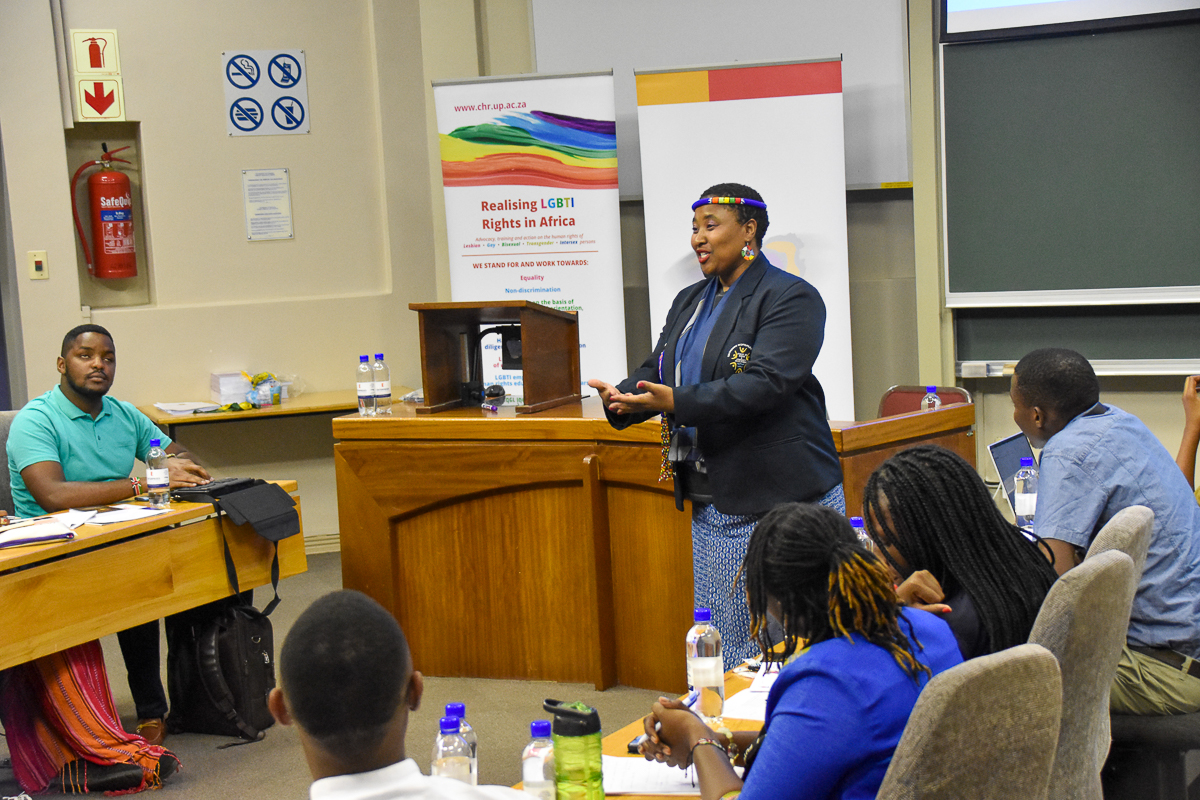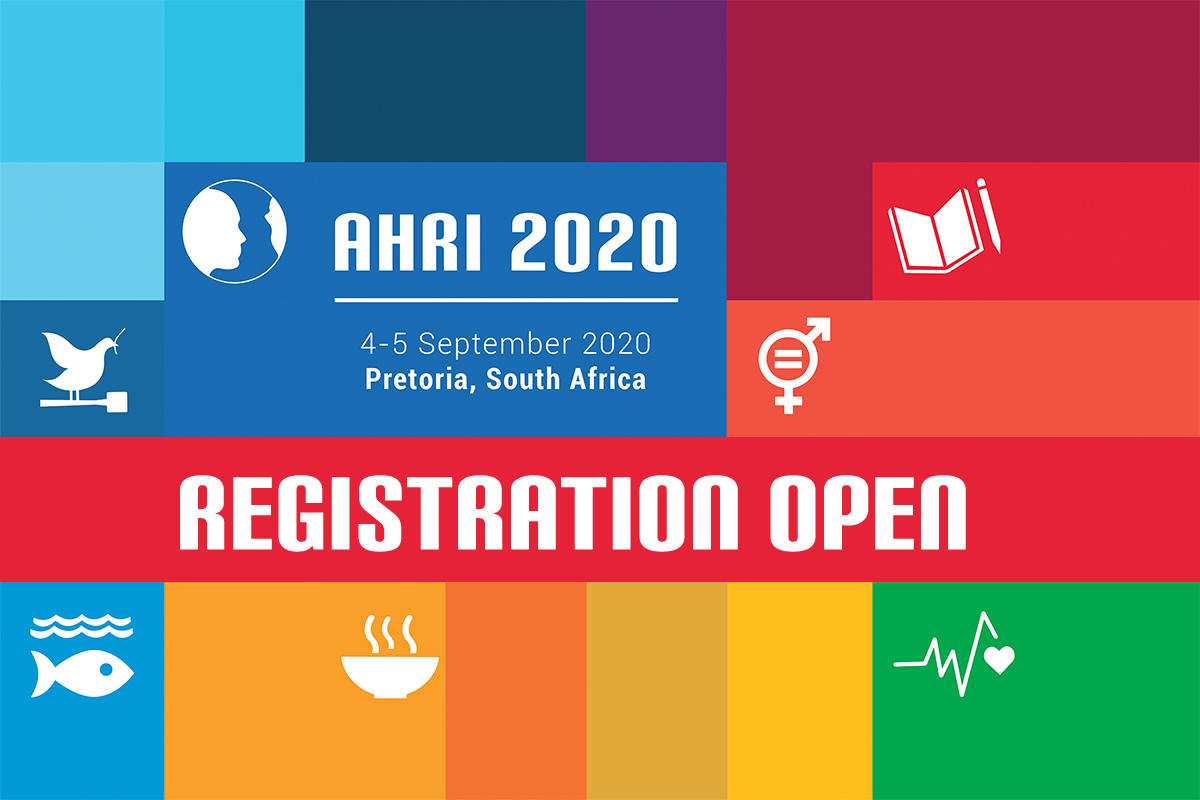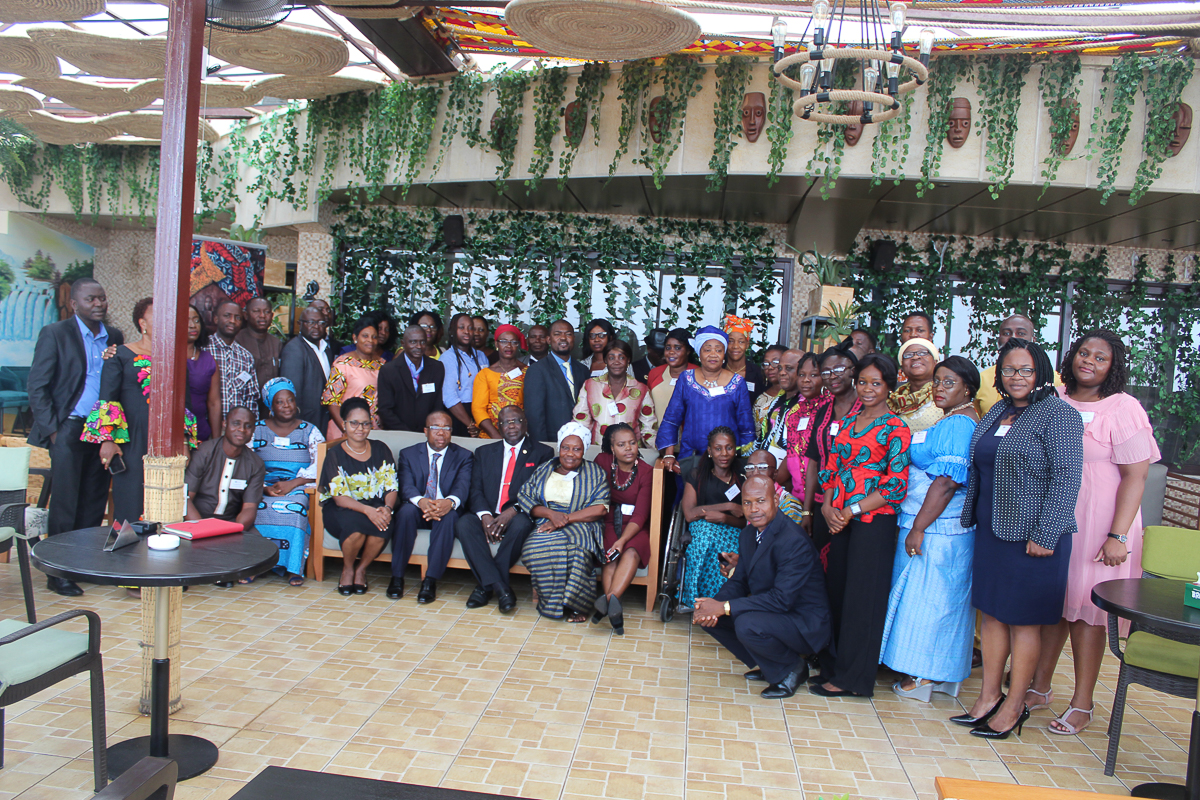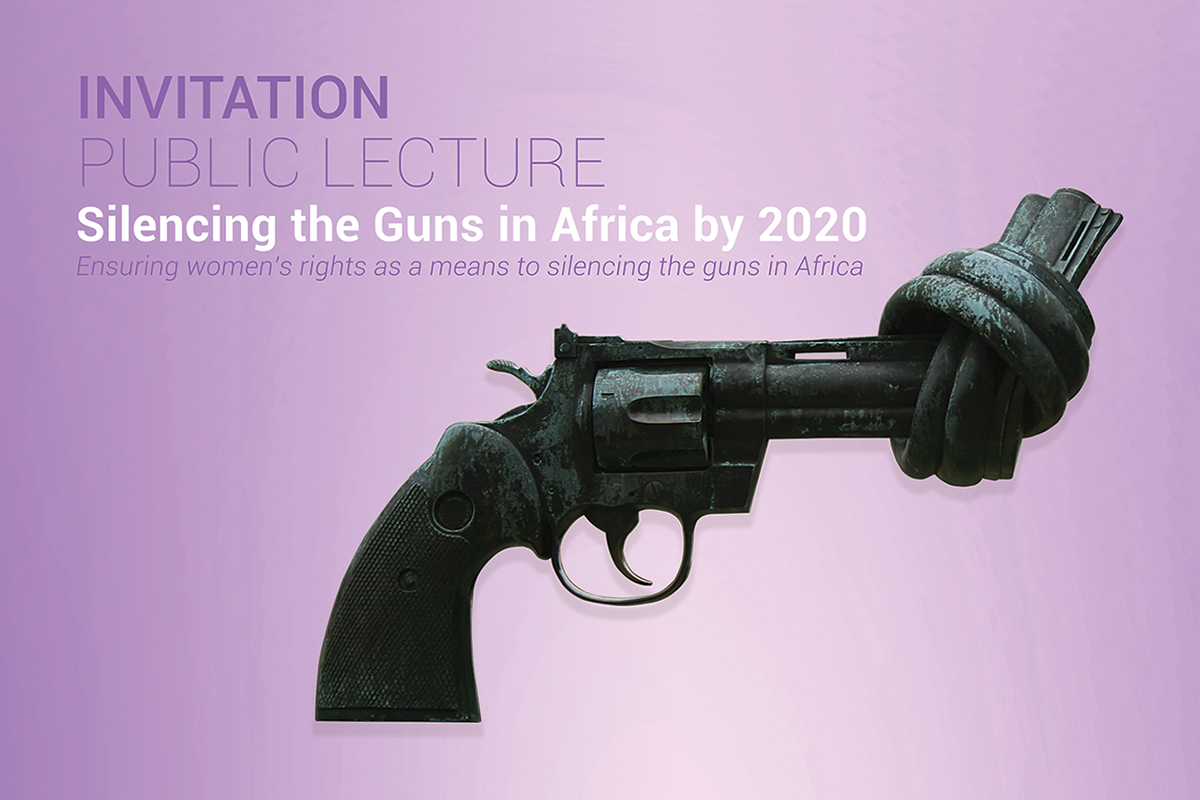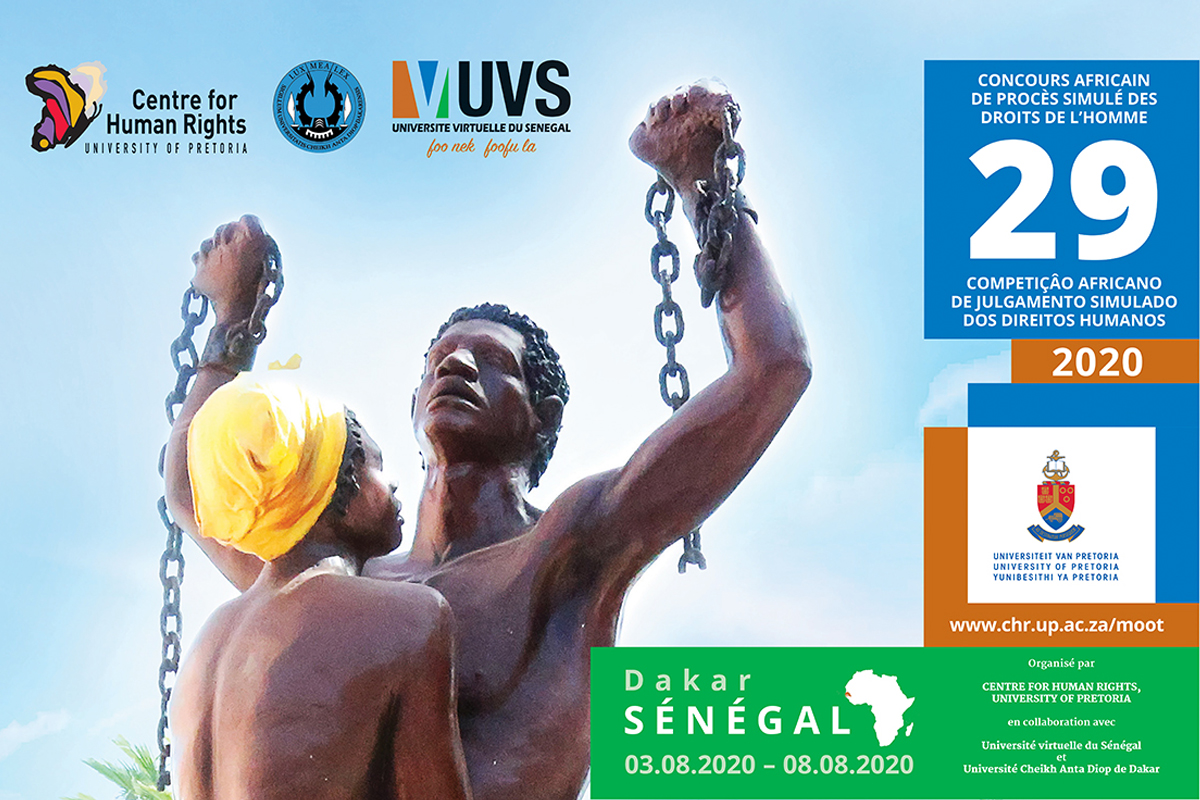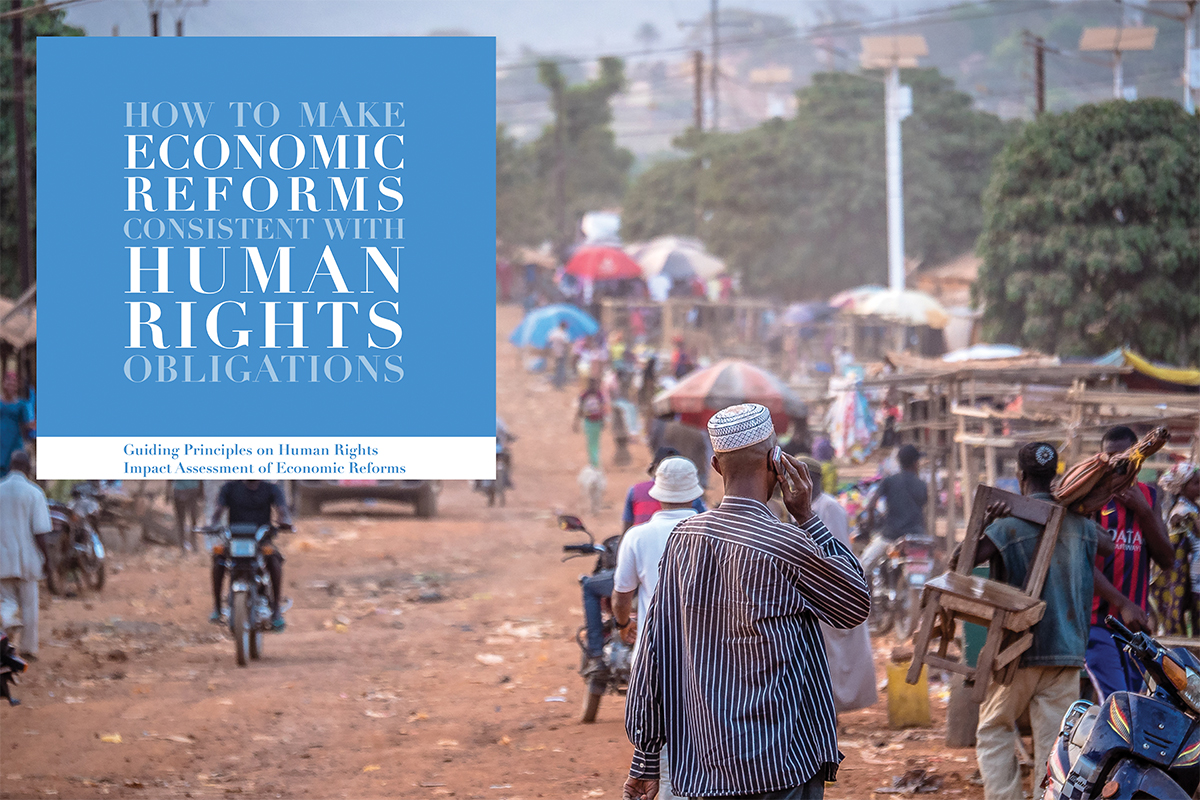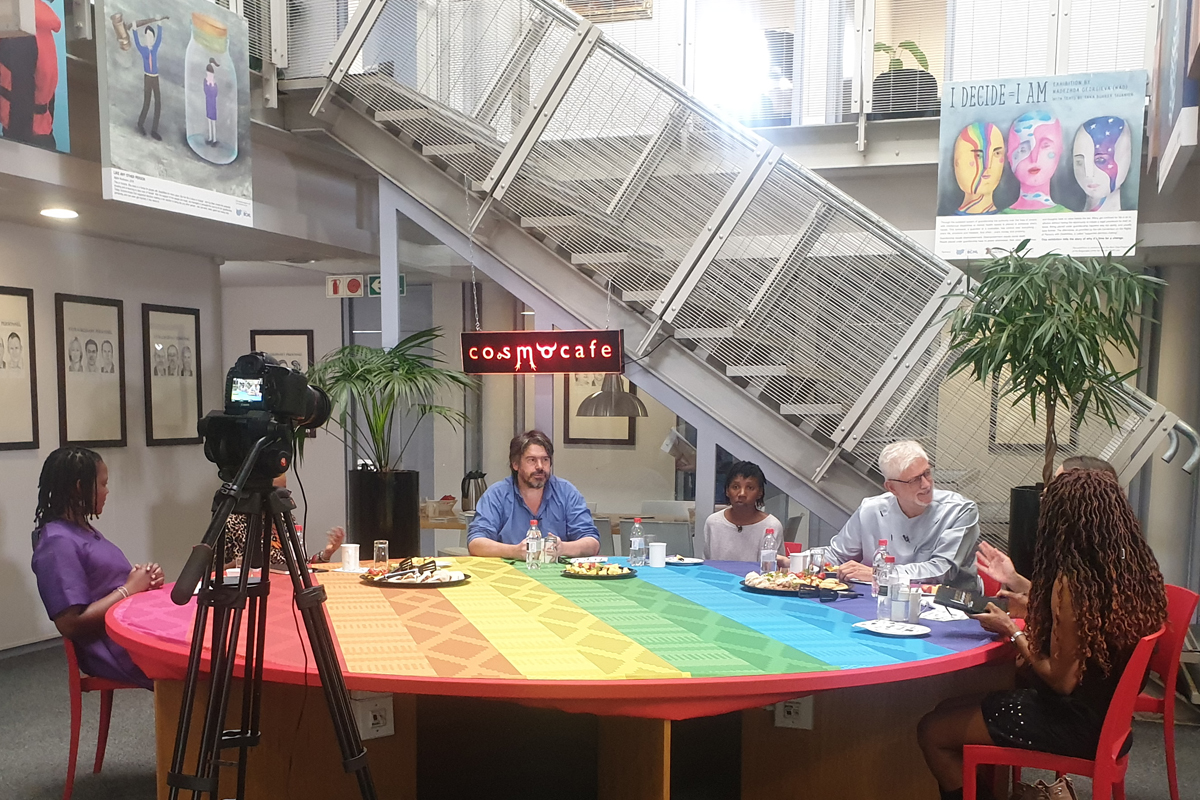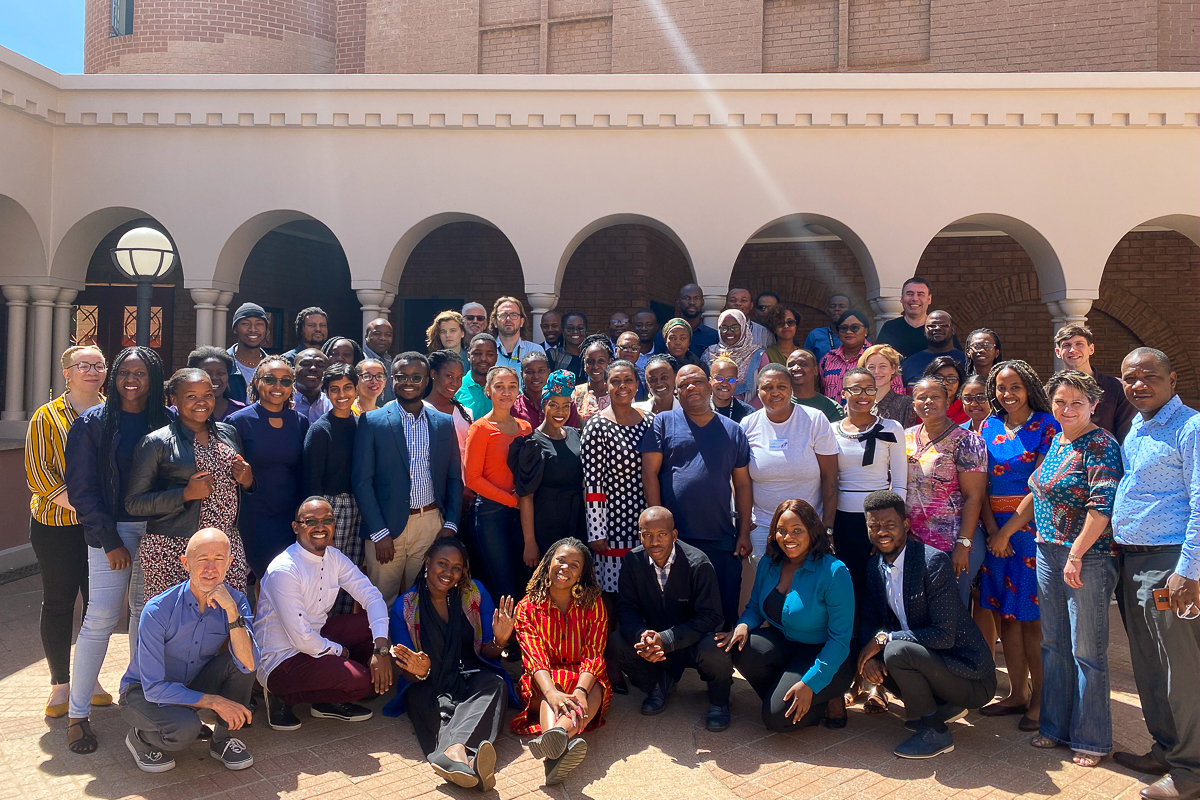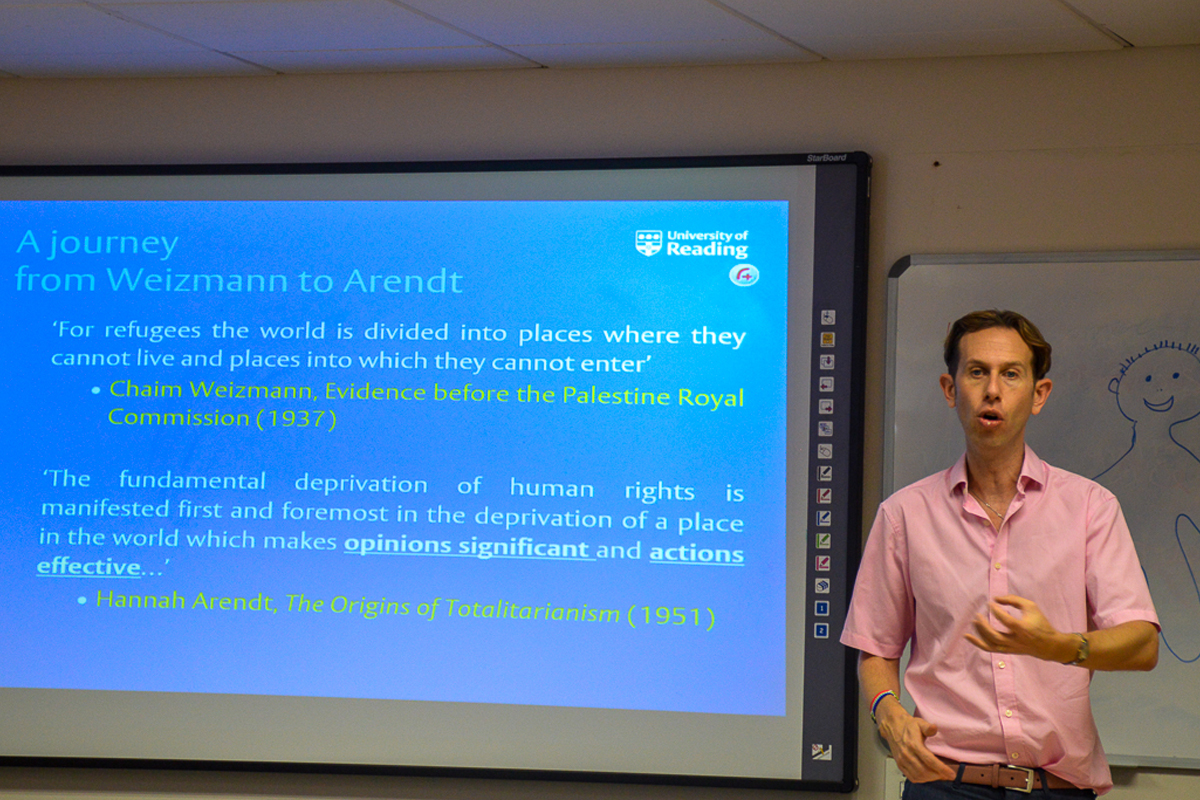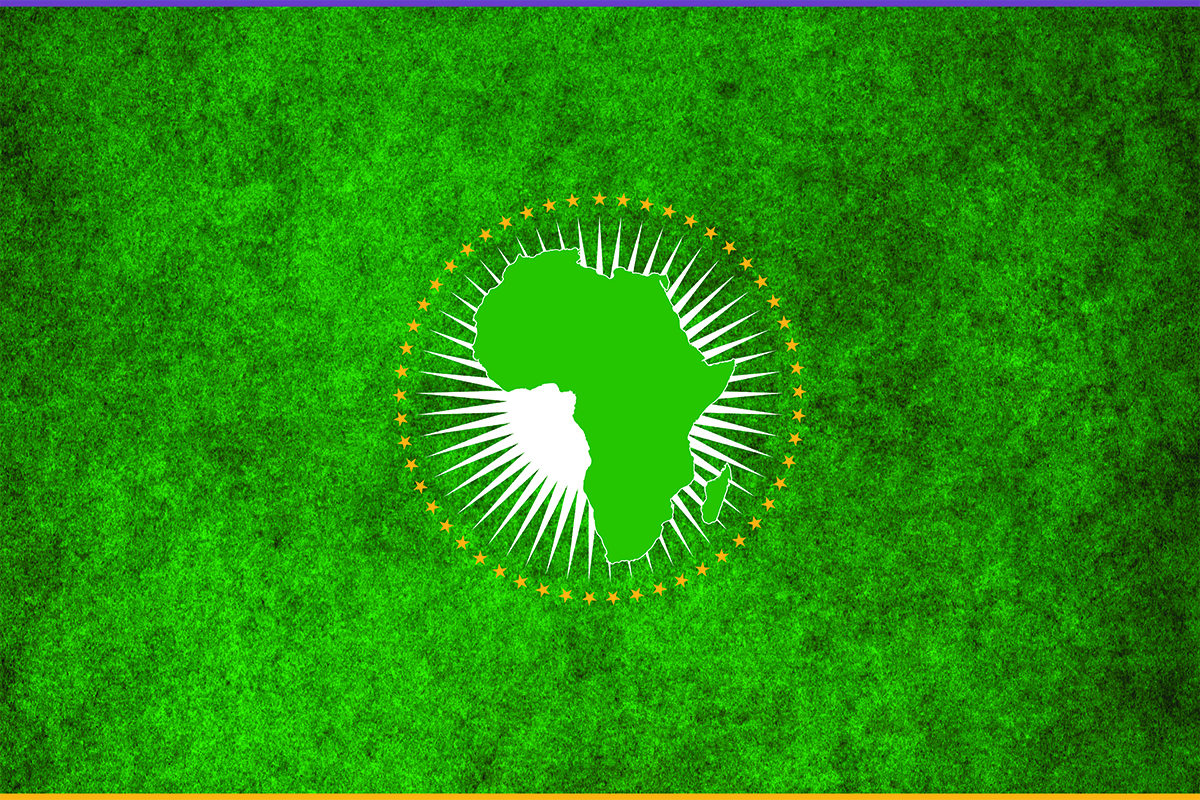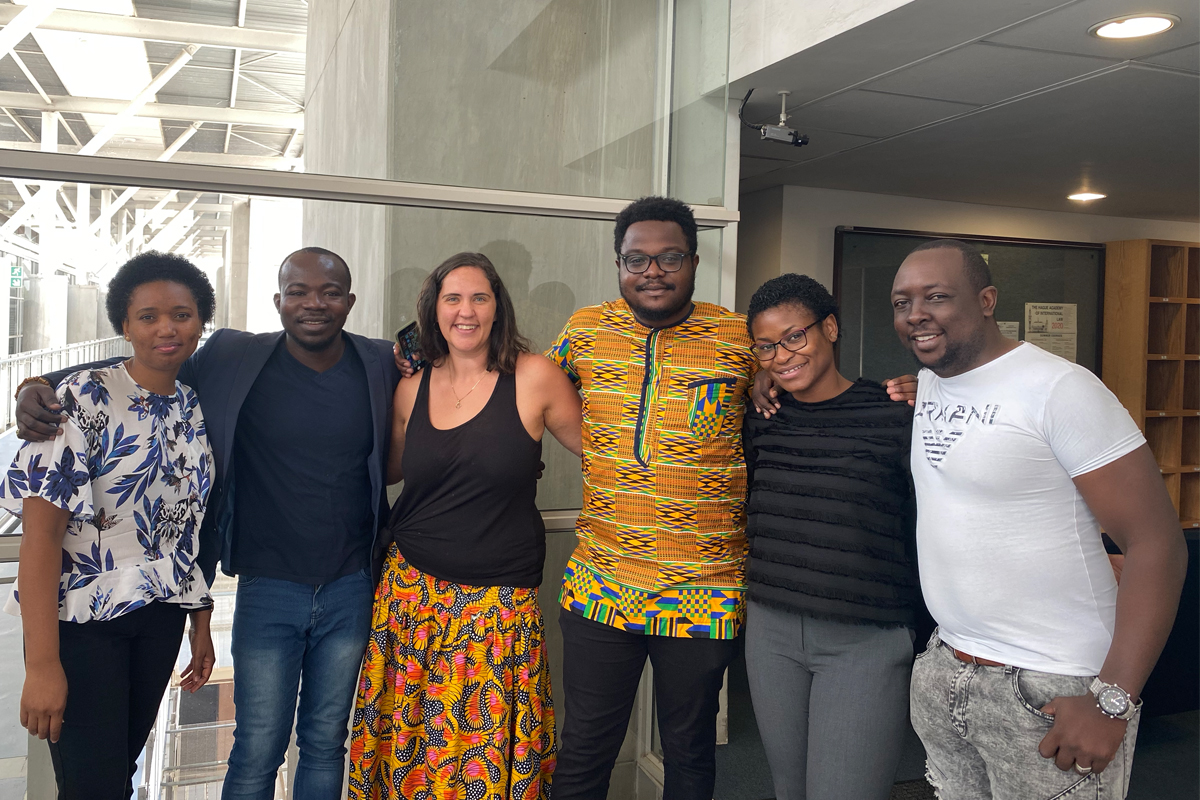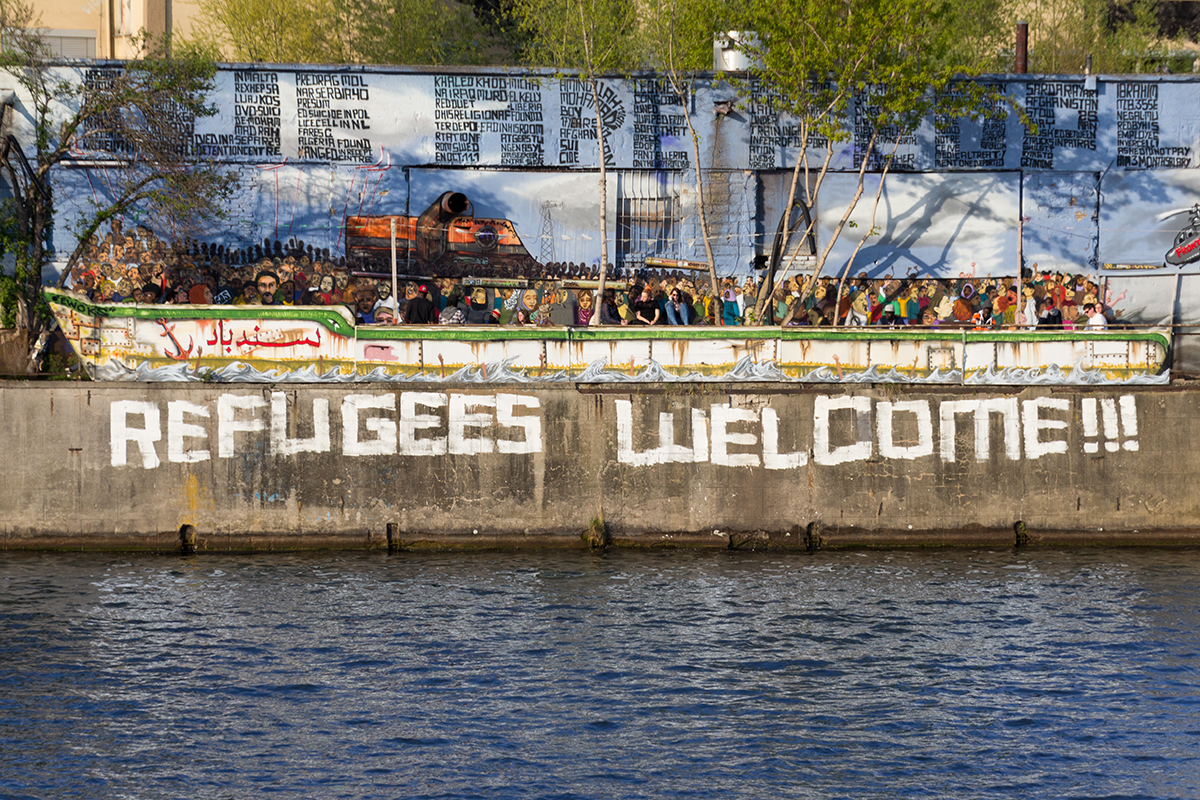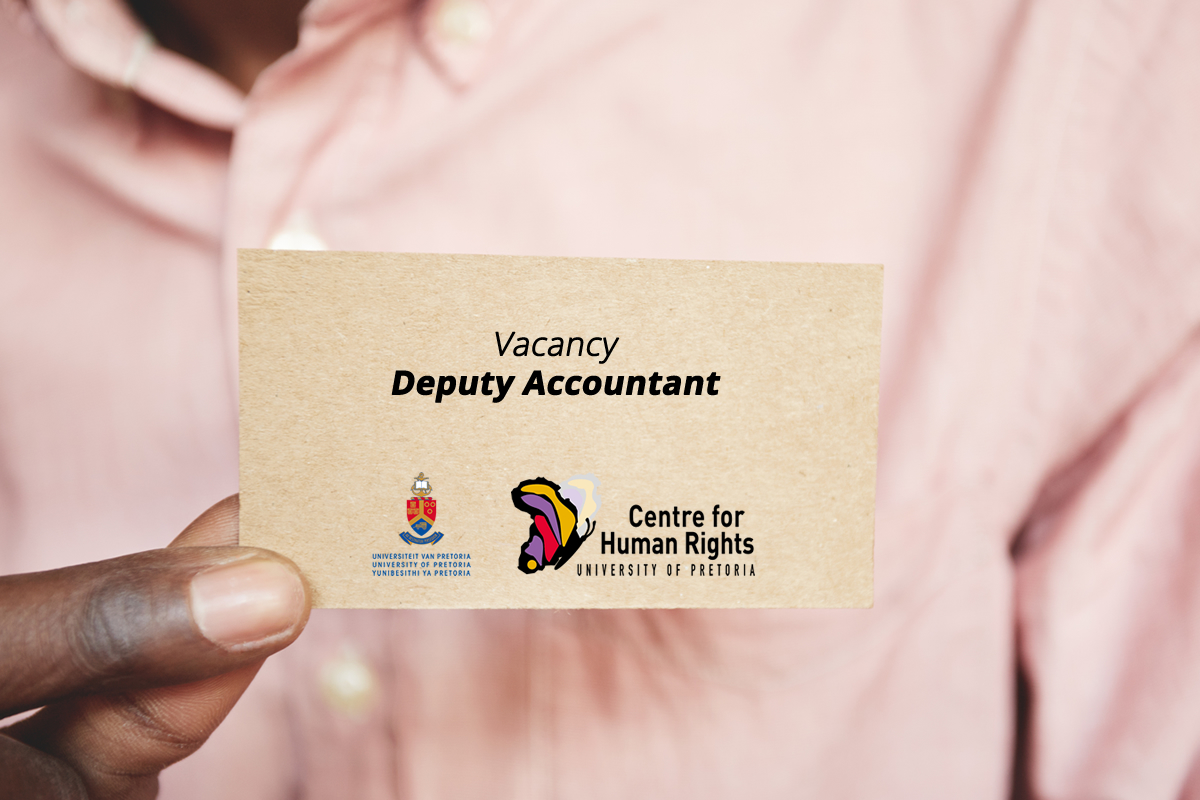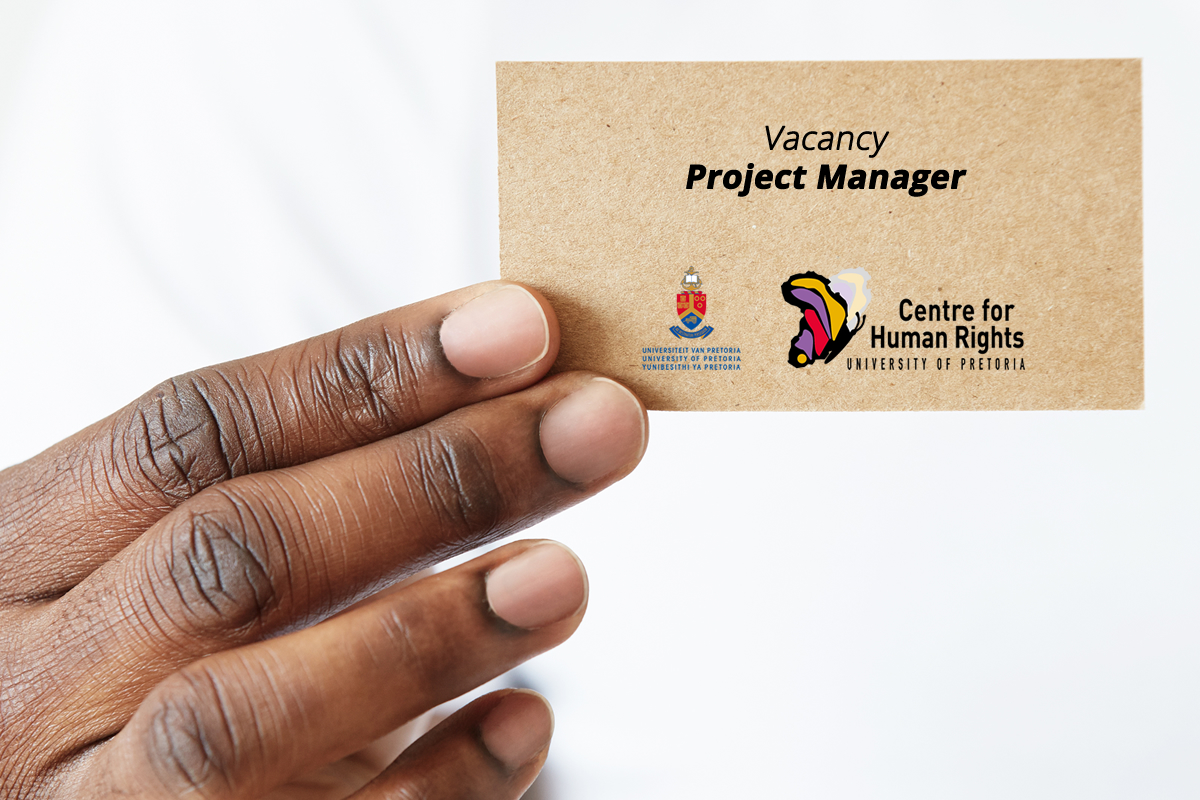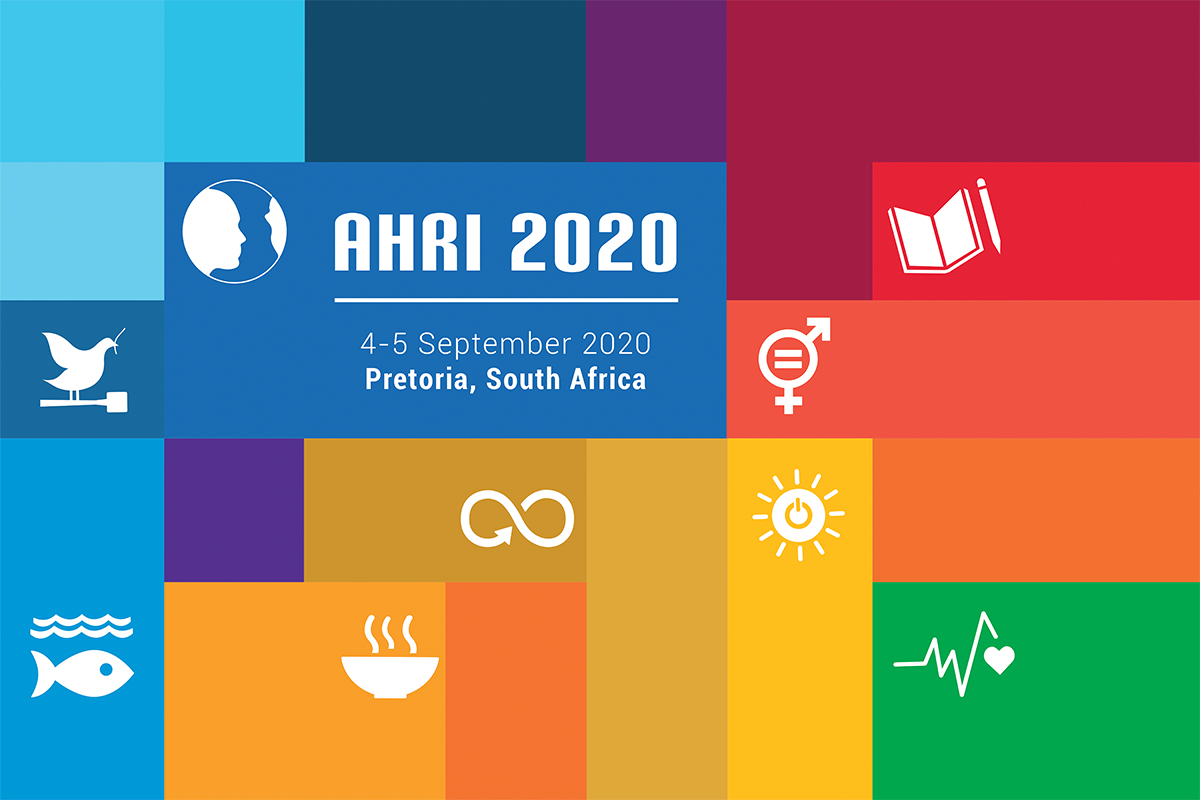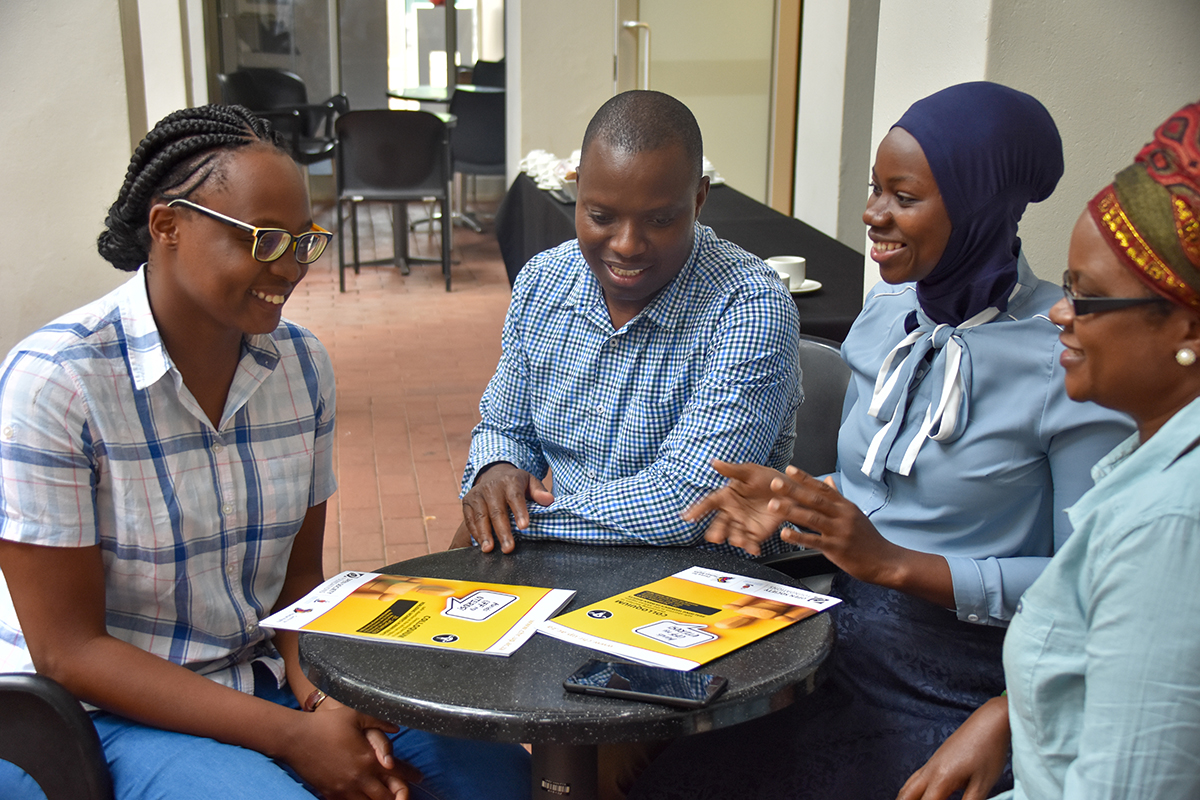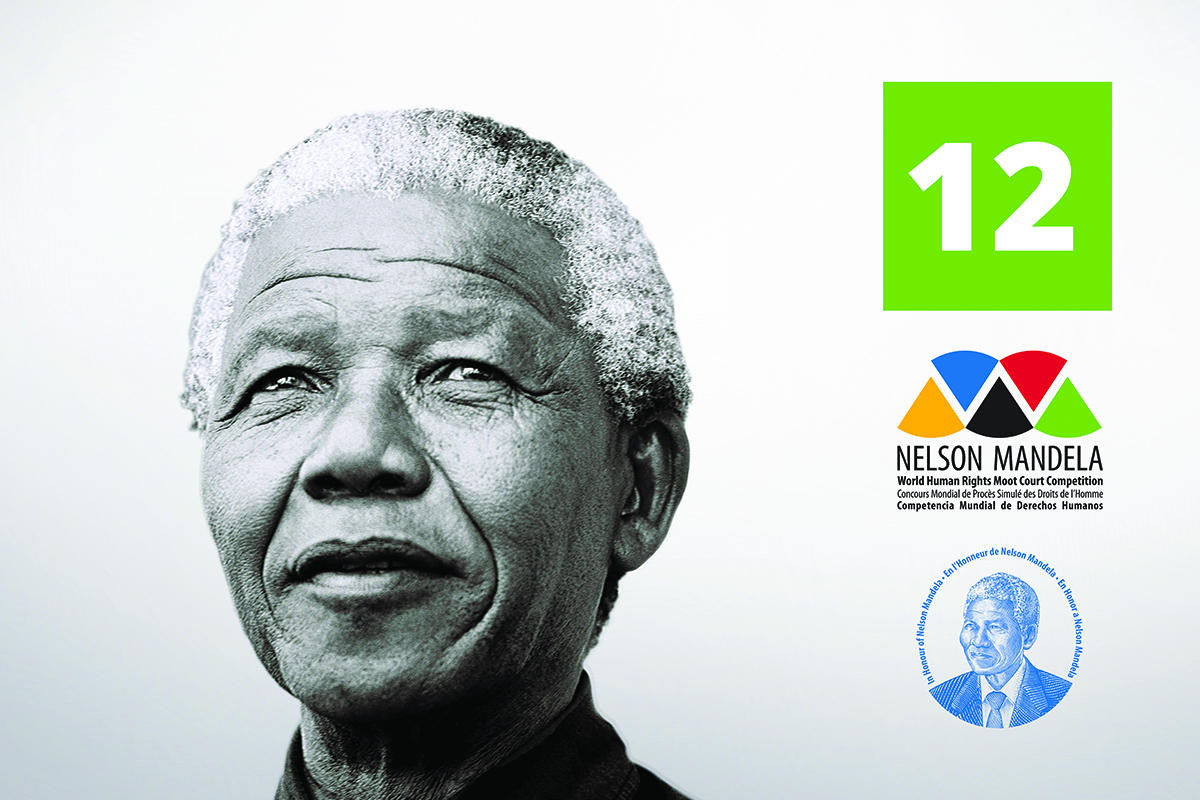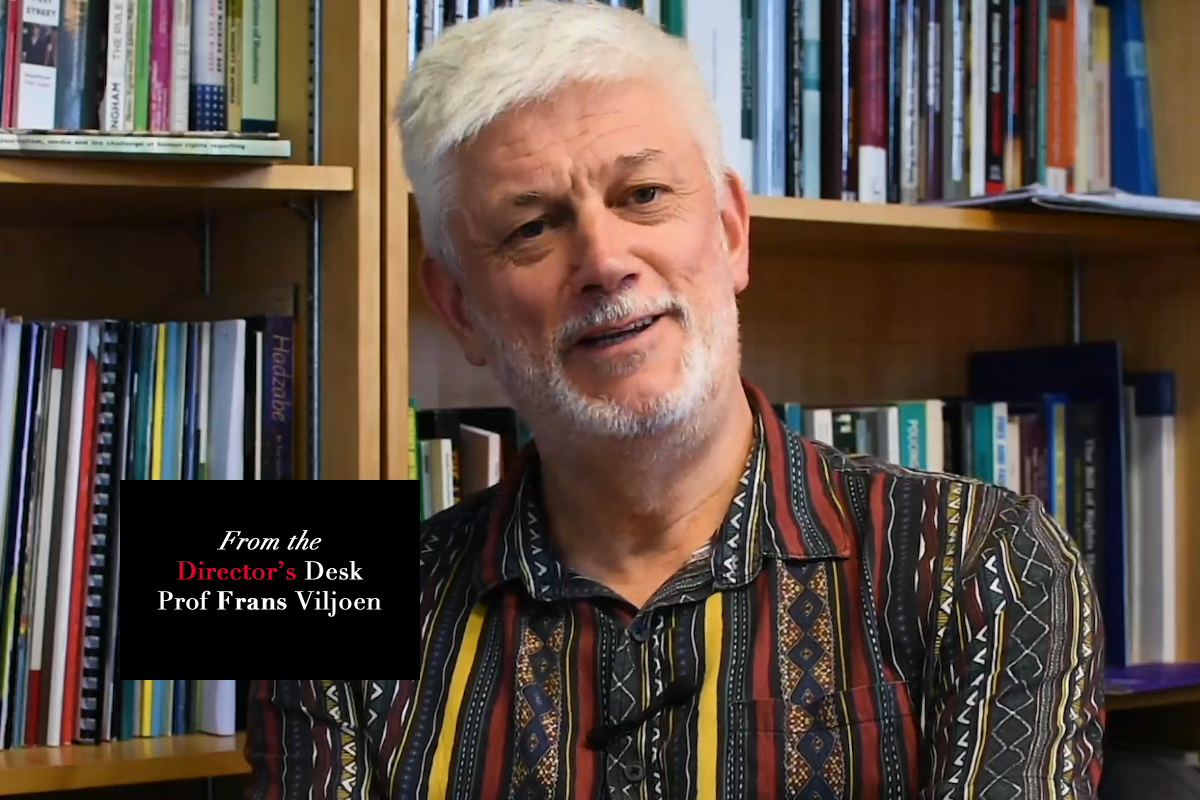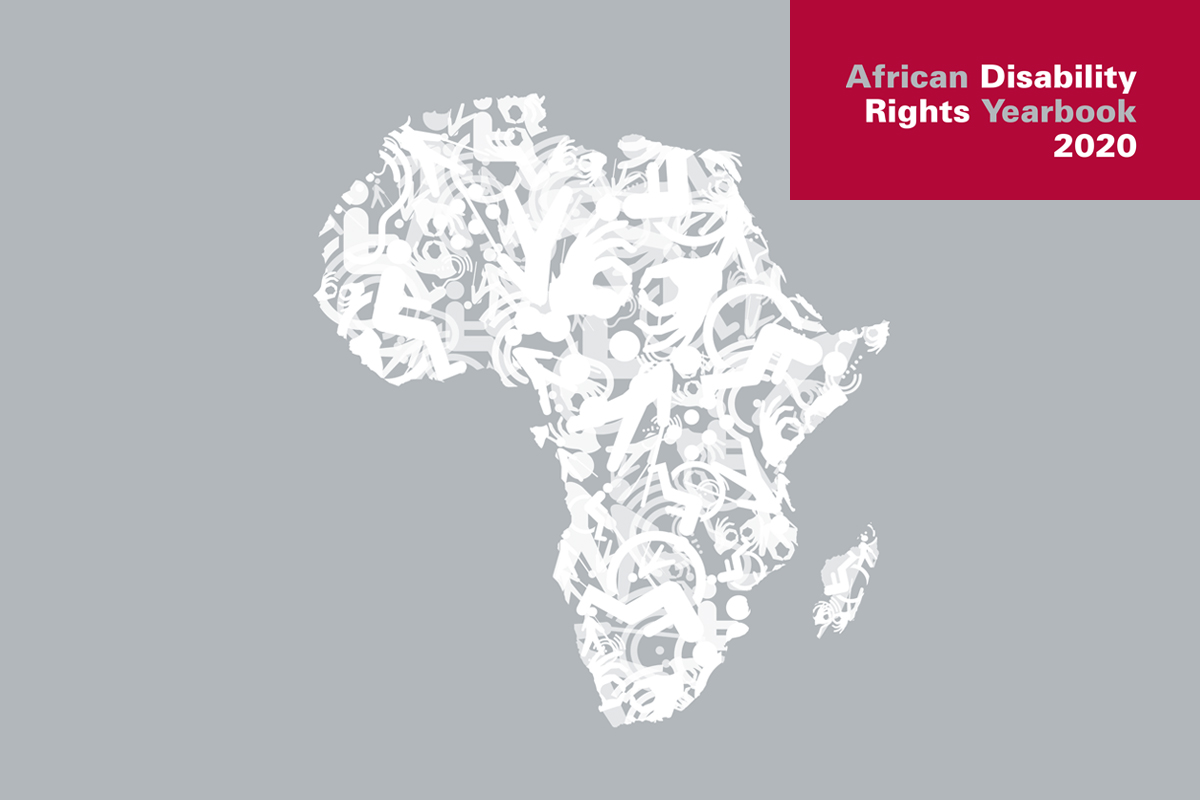- Details
As the world commemorates the World Press Freedom Day, the Centre for Human Rights, University of Pretoria, commends the African Commission on Human and Peoples’ Rights for making available the revised Declaration of Principles of Freedom of Expression and Access to Information in Africa at a time when the world has been plunged into a global health crisis, COVID-19. The current Declaration replaces the 2002 Declaration of Principles of Freedom of Expression in Africa. The revision was undertaken by the Special Rapporteur on Freedom of Expression and Access to Information (Special Rapporteur) against the backdrop developments in the developments that have taken place in the context of freedom of expression, access to information.
- Details
On 30 April 2020, the Centre for Human Rights, University of Pretoria, held the second in a series of discussions with Centre alumni, students and staff. These discussions deal with the potential and actual impact on human rights and democratisation of COVID-19 in Africa. The discussion was held in Zoom.
- Details
The Centre for Human Rights, University of Pretoria, cordially invites you to a webinar on human rights abuses by police officers during enforcement of government responses to COVID-19 in Africa.
- Details
Understanding the rights of sexual minorities as human rights
In conversation with Dr Adrian Jjuuko
- Details
The need for inclusive spaces for trans women in Africa
In conversation with Dr Anastacia Tomson
- Details
Statement by Centre for Human Rights, Faculty of Law, University of Pretoria, to the 2020 ECOSOC High Level Segment (HLS) for NGOs in consultative status with ECOSOC on the theme of the 2020 High-level Political Forum (HLPF) on “Accelerated action and transformative pathways: realizing the decade of action and delivery for sustainable development”.
- Details
This year, South Africans celebrate Freedom Day in conditions of confinement. We are reminded that on this day, 26 years ago, for the first time in history all South Africans exercised the most basic of rights, the right to vote. This election ushered in a system of democratic governance based on the values of equality, inclusion and tolerance, as entrenched in the Constitution of the Republic of South Africa.
- Details
Since 2008, Lesbian Visibility Day is celebrated annually on 26 April. It has now grown into a week-long event known as Lesbian Visibility Week and is celebrated from 20 to 26 April 2020. The day aims to celebrate and support lesbian women while increasing the visibility of the lesbian community. Across the globe, women who love women continue to be persecuted in a unique way. Their sexuality is often viewed as a challenge to patriarchal masculinity and traditional gender roles, and this frequently results in targeted violence against lesbian women. The violent phenomena of homophobic rape, more commonly recognised by the misnomer ‘corrective rape’, continues to plague the lesbian community. This is the situation in Africa, as it is around the world.
COVID-19 Discussion Fora: Centre hosts discussion forum on exacerbated vulnerability during COVID-19
- Details
On 23 April 2020, the Centre for Human Rights, University of Pretoria, held the first in a series of discussions with Centre alumni, students and staff. These discussions deal with the potential and actual impact on human rights and democratisation of COVID-19 in Africa. The discussion was held in Zoom.
- Details
The African Commission on Human and Peoples’ Rights has published the revised Declaration of Principles of Freedom of Expression and Access to Information in Africa (the Declaration). The Commission adopted the Declaration during its 65th Ordinary Session which was held from 21 October to 10 November 2019 in Banjul, The Gambia. The revised Declaration replaces the 2002 Declaration of Principles of Freedom of Expression in Africa. The initiative to revise the Declaration was undertaken by the Special Rapporteur on Freedom of Expression and Access to Information (the Special Rapporteur). The adoption of the Declaration is a landmark development that elaborates article 9 of the African Charter on Human and Peoples’ Rights and will contribute to an enhanced normative standard for freedom of expression, access to information and digital rights in Africa, in line with international human rights and standards. The Declaration was scheduled to be launched during the African Commission’s 66th Ordinary Session which has been deferred due to the COVID-19 crisis.
- Details
(Op-Ed by Thomas White)
Let’s go back to the “trolley problem”. Imagine a group of hostages is chained to a train track with a runaway locomotive hurtling towards them. If the train stays on course, the entire group of hostages is going to die. If the train is derailed, fewer deaths will ensue, but massive chaos will be caused in the process.
- Details
The Centre for Human Rights, University of Pretoria and the Centre for Applied Legal Studies, University of the Witwatersrand, call on the South African government to act swiftly to reduce the further spread of COVID-19 in South African correctional centres. This can be done by releasing a limited number of incarcerated persons so as to reduce their risk of contracting the virus, and allowing for more effective social distancing within correctional centres.
- Details
Students who have completed, or will complete, their doctoral studies in law at an African University in 2020 are encouraged to submit their doctoral theses for consideration for the new Pretoria University Law Press Thesis Prize, which will be awarded on an annual basis. The winning thesis will be published in book form by the Pretoria University Law Press (PULP).
- Details
Evidence is emerging that persons with disabilities are being disproportionately affected by the Coronavirus pandemic and emergency measures being taken by governments worldwide. As governments rush to respond to the virus, it is more critical than ever to guarantee that measures taken are fully inclusive of persons with disabilities and prevent human rights violations from taking place.
- Details
Due to the impact of the COVID-19 pandemic, the organisers of the African Human Rights Moot Court Competition have decided to adjust the format and dates of the 2020 African Moot Competition. The preliminary rounds of the Competition will now take place virtually, and the semi-final and final rounds have been rescheduled to take place in Dakar, in December 2020.
- Details
The Centre for Human Rights, University of Pretoria and the Centre for Applied Legal Studies, University of the Witwatersrand, are deeply concerned about the situation of migrants in the territory of South Africa during this COVID-19 crisis.
- Details
The study on Civil society in the digital age in Africa: identifying threats and mounting pushbacks was undertaken by the Centre for Human Rights, University of Pretroia and the Collaboration on International ICT Policy in East and Southern Africa (CIPESA) to explore the extent of state-sponsored digital challenges that the civil society in Africa is faced with. It illustrates the challenges faced by civil society organisations and the importance of digital security measures.
- Details
(Op-Ed by Prof Danny Bradlow)
The coronavirus and its economic consequences have caused economic tsunamis in every country in the world. The scale of the onslaught will dominate discussions at the International Monetary Fund (IMF)/World Bank spring meetings due to take place – for the first time ever virtually – in mid April.
- Details
Recently, three graduates of the Master’s in Human Rights and Democratisation in Africa (HRDA) programme, presented by the Centre for Human Rights, Faculty of Law, University of Pretoria, were appointed to positions in which they are able to apply the theory of democratisation and human rights to make a difference in two African states, Namibia and Uganda.
- Details
The Centre for Human Rights in an effort to spearhead the belief of leaving no one behind acknowledges the importance of a rights-based approach to ageing and calls for the promotion and protection of the rights of older persons.
- Details
The Centre for Human Rights, Faculty of Law, University of Pretoria, South Africa, is calling for applications for the Master's degree (LLM/MPhil) in Human Rights and Democratisation (HRDA) for the Class of 2021. This prestigious degree is presented by the Centre in partnership with 12 leading African universities.The programme forms part of the Global Campus of Human Rights, with Pretoria as the hub of the African regional programme.
- Details
The Centre for Human Rights, Faculty of Law, University of Pretoria, South Africa, is calling for applications for the Master's degree (LLM/MPhil) in Disability Rights in Africa (DRIA) for the Class of 2021. The DRIA programme was launched in 2018 and is the first master’s degree programme in Africa focusing specifically on the rights of persons with disabilities in Africa.
- Details
The Centre for Human Rights, Faculty of Law, University of Pretoria, South Africa, is calling for applications for the Master's degree (LLM/MPhil) in Sexual & Reproductive Rights in Africa (SRRA) for the Class of 2021. The SRRA degree is a unique degree, offered as a blended learning programme, to which 15 individuals from African countries are admitted.
- Details
The Centre for Human Rights, Faculty of Law, University of Pretoria, South Africa, is calling for applications for the Master's degree (LLM) in International Trade and Investment Law in Africa (TILA) for the Class of 2021. The TILA degree is a unique programme to which 25 to 30 individuals from African countries with a degree allowing access to the legal profession (e.g. LLB or licence en Droit) and preferably experience in the field of trade and investment law are admitted.
- Details
Due to the impact of the COVID-19, the oral rounds of the Nelson Mandela World Human Rights Moot Court Competition will now be held in December 2020, and no longer in July. The Competition will be scheduled around Human Rights Day (10 December), with participating teams and judges traveling to Geneva, Switzerland, for the oral rounds. If this would not be possible, the oral rounds, probably in an adjusted and scaled down version, will be held on-line. Either way, the 2020 Competition will still be held.
- Details
The African Coalition for Corporate Accountability (ACCA) wishes to inform its members, partners and other stakeholders of the suspension, until further notice, of the Southern and Central Africa capacity building trainings, as well as the side event scheduled to take place during the 66th ordinary session of the African Commission on Human and Peoples’ Rights.
- Details
The South African government announced a 21-day lockdown of the country starting on 27 March 2020, as part of measures to address the COVID-19 pandemic. Following the national directive, the University of Pretoria took the decision to close down until 16 April 2020. Being based in South Africa, and the University of Pretoria in particular, the Centre for Human Rights is directly affected by these measures.
The COVID-19 pandemic and the resulting restrictions on movement has generated considerable anxiety and uncertainty for us. We support and embrace these measures for unmistakably serving the public good, but we are also aware of their disruptive effect on our regular mode of academic and programmatic work. We have therefore made efforts to ensure continuity as far as possible, and to minimise disruption where possible. Our commitment is driven by the long-term goal of ensuring the advancement of the protection of human rights through education, research and advocacy on the African continent.
- Details
We live in uncertain times. Around the world, severe measures have been put in place to protect public health and avoid the collapse of health care systems. Many countries are in lock down and international travel has all but ceased. South Africa will be in lock down for 21 days from midnight on 26 March.
- Details
As South Africa continues to evolve nearly 26 years into its democratic era, special occasions such as Human Rights Day on 21 March are a sobering reminder of the struggle and sacrifice that so many undertook for the benefit of all.
Human Rights Day memorialises the 69 people killed and 180 injured during the Sharpeville Massacre in 1960, which followed a march by ordinary people demonstrating against unjust pass laws which infringed on their right to freedom of movement.
- Details
Following President Cyril Ramaphosa's speech on 15 March 2020, the Executive Management of the University of Pretoria has decided to suspend contact classes, graduation ceremonies, conferences, mass gatherings and events.
- Details
The Advanced Human Rights Courses (AHRC), in collaboration with the Disability Rights Unit of the Centre for Human Rights, University of Pretoria (UP), recently hosted the annual short course on Disability Rights in an African Context, from 9 to 13 March 2020.
- Details
Background to the Yearbook
The African Court on Human and Peoples’ Rights, the African Commission on Human and Peoples’ Rights, and the African Committee of Experts on the Rights and Welfare of the Child are pleased to announce the call for papers for the Fourth Volume of the African Human Rights Yearbook (AHRY). The First Volume, which was published at the end of 2017, comprised 17 articles while the Second Volume contained a total of 23 contributions. It was published in early 2019. The Third Volume, published end of 2019, comprised 25 contributions. This joint publication, which contains contributions in English, French and Portuguese has been initiated in the framework of the complementarity relationships among the three institutions. For this Fourth Volume, we also invite abstracts in Arabic.
- Details
The Centre for Human Rights, University of Pretoria (UP) through its Advanced Human Rights Courses (AHRC) and the Disability Rights Unit is currently hosting the annual Disability Rights in an African Context course.
- Details
From 3 to 4 March 2020 the Pan-African Parliament (PAP) hosted a Joint Workshop of Committees on the 2020 African Union (AU) theme. The AU’s theme for 2020 is Silencing the Guns: Creating a conducive environment for Africa’s development. The theme is intended to ensure that Africa creates a conducive environment towards prioritising peace, security and socio-economic development.
- Details
COVID-19: Welcoming Ceremony Master's Programmes postponed
As South Africa faces the locally expanding coronavirus epidemic, the University of Pretoria’s (UP) executive management team has decided to postpone contact classes and to reschedule the academic calendar.
Therefore, the welcoming ceremony, scheduled for 20 March 2020, is postponed. Details regarding the rescheduling of the ceremony will be communicated via the Centre's website and social media channels in due course.
We urge our students, staff, friends and colleagues to stay safe as we collectively turn the tide against this pandemic.
- Details
(Op-Ed by Ade Johnson, Thiruna Naidoo & Annie Bipendu)
International Women's Day (IWD), celebrated annually on 8 March, is an opportunity to reflect on the achievement of gender equality in the world, and particularly in Africa. The commemoration of IWD provides a chance to assess the changes and progress made towards the achievement of gender equality generally and the protection of the human rights of women and girls particularly.
- Details
The Advanced Human Rights Courses (AHRC), in collaboration with the SOGIESC Unit of the Centre for Human Rights, University of Pretoria (UP), recently hosted the annual short course on Sexual Minority Rights in Africa, from 24 to the 28 February 2020. The course was attended by 58 participants from all over the world, with 20 African countries represented. This year’s participants included students on both the LLM/MPhil (Human Rights and Democratisation in Africa) and the LLM/MPhil (Sexual and Reproductive Rights in Africa) programmes. Also in attendance were doctoral researchers, judicial officers, representatives from the Network of African National Human Rights Institutions (NANHRI), members of civil society, academics and members from the South African Police Services (SAPS).
- Details
Registration for the 2020 Conference of the Association of Human Rights Institutes (AHRI) on 'The future of human rights: Socio-economic rights, equality and development' is now open!
- Details
As a country previously ravaged by a protracted civil war that killed approximately 150 000 people and left behind 200 000 refugees, Liberia is rising from the ashes of its past. In addition, it has had to deal with the Ebola virus that also wiped out thousands more from its population, yet the country continues to strive to improve its human rights record. This was demonstrated by the commitment that the government of Liberia has made to the drafting of a state party report to the African Commission on Human and Peoples’ Rights (African Commission) under the African Charter on Human and Peoples’ Rights (African Charter) and the Protocol to the African Charter on Human and Peoples’ Rights on the Rights of Women in Africa (Maputo Protocol).
- Details
COVID-19: Public Lecture postponed
As South Africa faces the locally expanding coronavirus epidemic, the University of Pretoria’s (UP) executive management team has decided to postpone contact classes and to reschedule the academic calendar.
Therefore, the public lecturey, scheduled for 24 March 2020, is postponed. Details regarding the rescheduling of the lecture will be communicated via the Centre's website and social media channels in due course.
We urge our students, staff, friends and colleagues to stay safe as we collectively turn the tide against this pandemic.
- Details
Registration for the 29th African Human Rights Moot Court Competition is now open. The competition will be held from 3 - 8 August 2020 in Dakar, Senegal.
- Details
The UN Independent Expert on foreign debt and human rights, Dr Juan Pablo Bohoslavsky, developed the Guiding Principles on Human Rights Impact Assessments of Economic Reforms (A/HRC/40/57) to help governments understand how to use human rights impact assessments (HRIAs) to promote human rights compliant economic reform policies.
- Details
On 6 February 2020, the Centre for Human Rights, University of Pretoria (UP), collaborated with Belgian artist Koen Vanmechelen to host the second African edition of Cosmocafe. The Cosmocafe concept is part of the Human Rights Pavilion project conceived by Vanmechelen. It entails real conversations on human rights issues, referred to as SoTO Dialogues (Survival of the Other), that discusses the possibility of a universal human rights concept and the role of human rights in development. Previously, Cosmocafes have been held in 19 locations worldwide including Harare, Zimbabwe.
- Details
The Centre for Human Rights, University of Pretoria through its Advanced Human Rights Courses (AHRC) and the SOGIESC Unit, is currently hosting the annual Sexual Minority Rights in Africa course.
- Details
The political exclusion of refugees was discussed at a recent lecture hosted on 18 February 2020 by the Centre for Human Rights, University of Pretoria. The theme of the lecture was on the voting rights of refugees. Students on the Master’s programmes in Human Rights and Democratisation in Africa (HRDA) and Multidisciplinary Human Rights (MDHR) were also in attendance.
- Details
The Centre for Human Rights, University of Pretoria, is presenting a massive open online course (MOOC) on nthe African human rights system. Enrolment is free and the course runs from 17 February to 9 March 202. This is the second time that this MOOC is presented.
- Details
A number of alumni of the Master’s programme in Human Rights and Democratisation in Africa (HRDA) participated in the 17th All Africa Course on International Humanitarian Law (IHL). The course was presented at the Faculty of Law, University of Pretoria, from 28 January to 6 February 2020.
- Details
The Centre for Human Rights, University of Pretoria, cordially invites you to a Brown Bag Lunch Lecture on Voting Rights of Refugees by distinguished international refugee law scholar, Dr Reuven (Ruvi) Ziegler.
- Details
The Centre for Human Rights, University of Pretoria, is seeking a Deputy Accountant. The deadline for applications is 21 February 2020.
- Details
The Centre for Human Rights, University of Pretoria, is seeking a Project Manager for its Business and Human Rights Unit. The deadline for applications is 21 February 2020.
- Details
The Centre for Human Rights, University of Pretoria, will host the 2020 Conference of the Association of Human Rights Institutes (AHRI) on 'The future of human rights: Socio-economic rights, equality and development'. The conference will be held from 4 to 5 September 2020 at Future Africa.
- Details
On 23 and 24 January 2020, the Centre for Human Rights, Faculty of Law, University of Pretoria, convened a colloquium on developing responses to the persistence of unsafe abortion in the African region. The colloquium was convened by the Centre’s Sexual and Reproductive Rights in Africa (SRRA) programme. The focus of the colloquium was two-fold: critically exploring laws, policies and practices that serve as barriers to access to safe abortion in the African region; and suggesting reforms to overcome the barriers in ways that respect, protect, promote and fulfil women’s human rights.
- Details
The Centre for Human Rights, University of Pretoria and the Centre for Applied Legal Studies (CALS), cordially invites you to a side-event on Civil Society Engagement with the Pan-African Parliament (PAP). This event will be held on the sidelines of the upcoming Alternative Mining Indaba in Cape Town, South Africa.
- Details
Registration for the 12th Nelson Mandela World Human Rights Moot Court Competition is now open. The competition will be held from13 to 17 July 2020 at the Palais des Nations in Geneva, Switzerland.
- Details
The year 2019 was quite momentous for us in the Centre for Human Rights, both in the Centre’s capacity as an academic institution and as an NGO.
As an academic department of the Faculty of Law, we celebrated 20 years of the Master’s programme in Human Rights and Democratisation in Africa (HRDA). We had a number of events with alumni and we were so fortunate to reflect on the great achievements of many of them and the significant roles they have been playing on the African continent. We also marked the introduction of another Master’s programme, one in Disability Rights in Africa last year and we saw a number of students graduating in our Master’s programme in International Trade and Investment Law in Africa (TILA).
- Details
The African Disability Rights Yearbook (ADRY) is calling for papers for consideration for publication in Section A of the ADRY in 2020. The ADRY publishes once a year with a focus on disability rights issues and developments of contemporary concern to persons with disabilities on the African continent. The ADRY is published by the Pretoria University Law Press (PULP) and is published as a peer-reviewed open-access journal.

